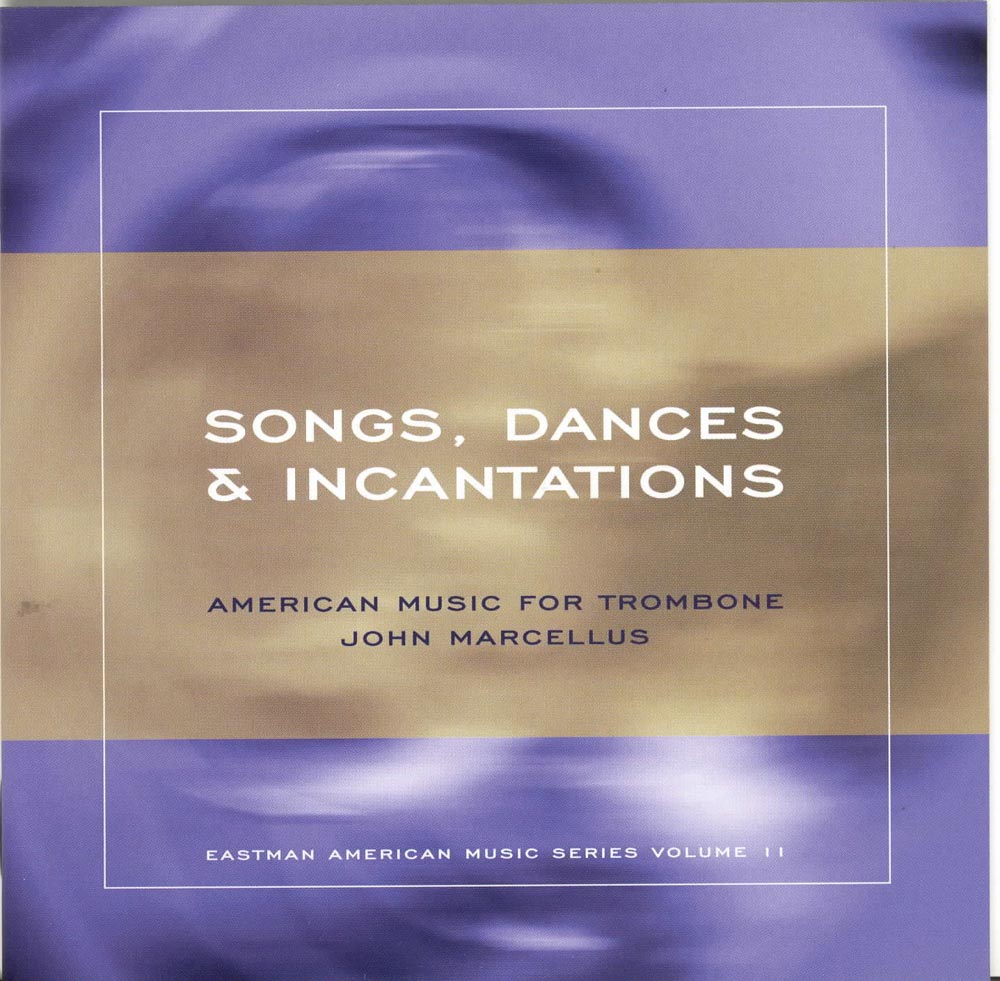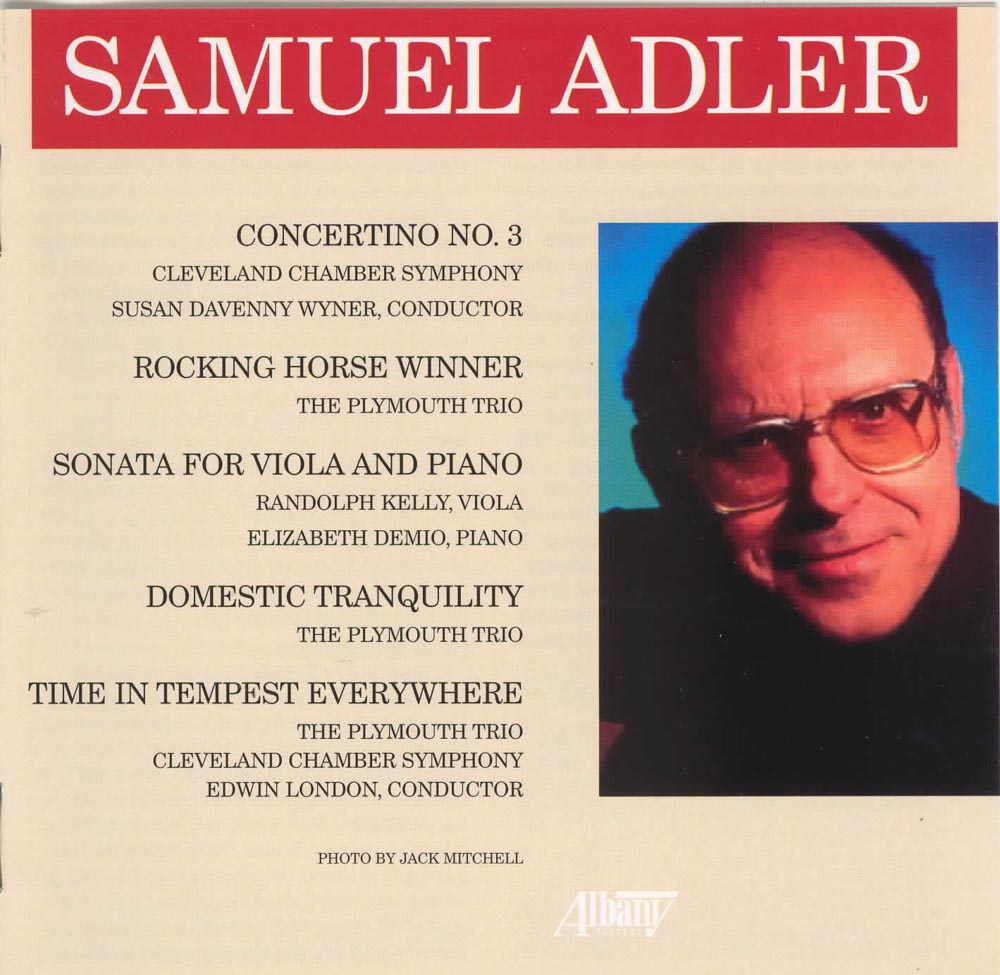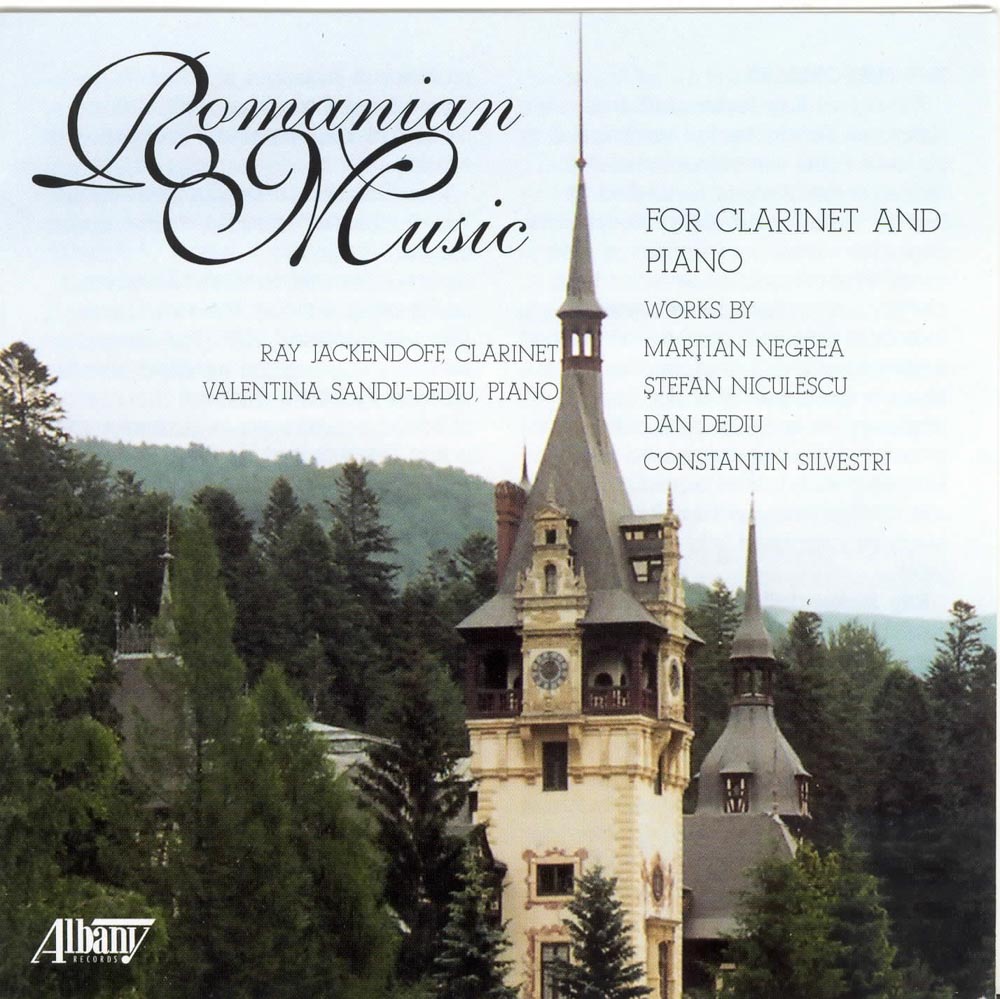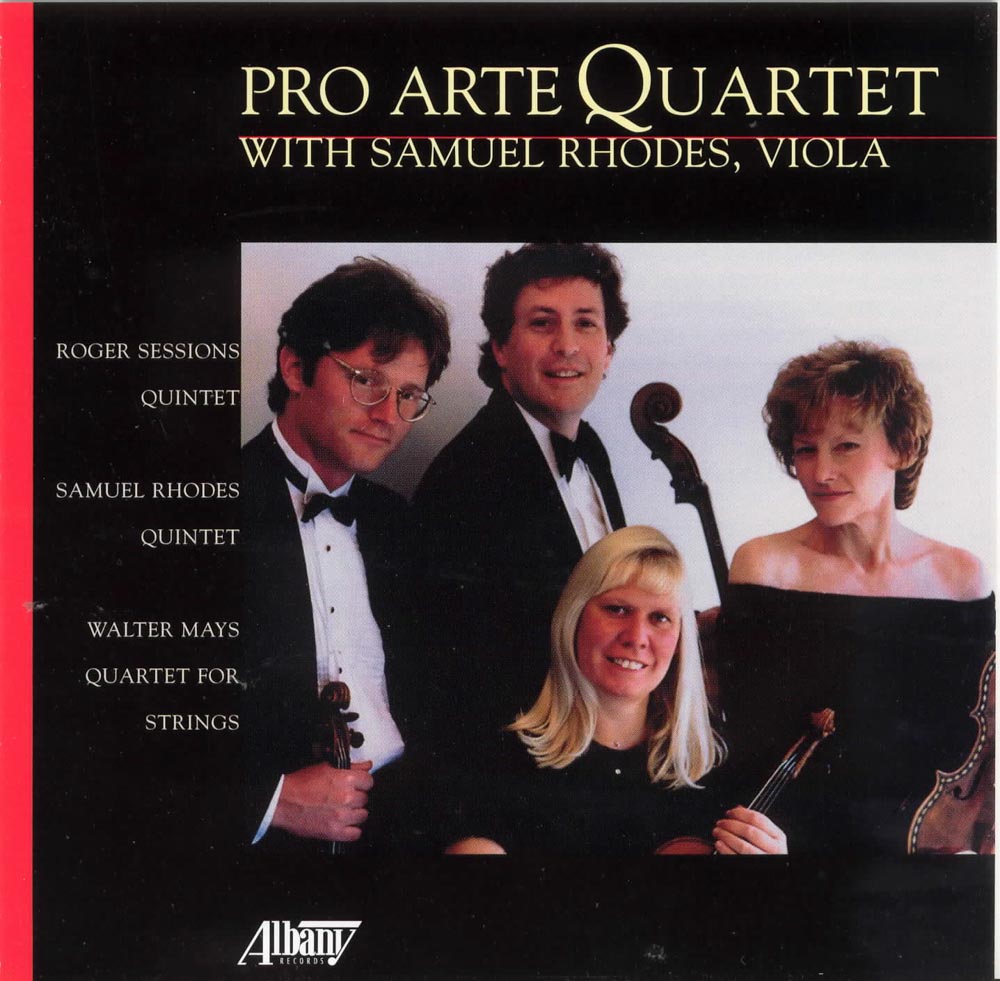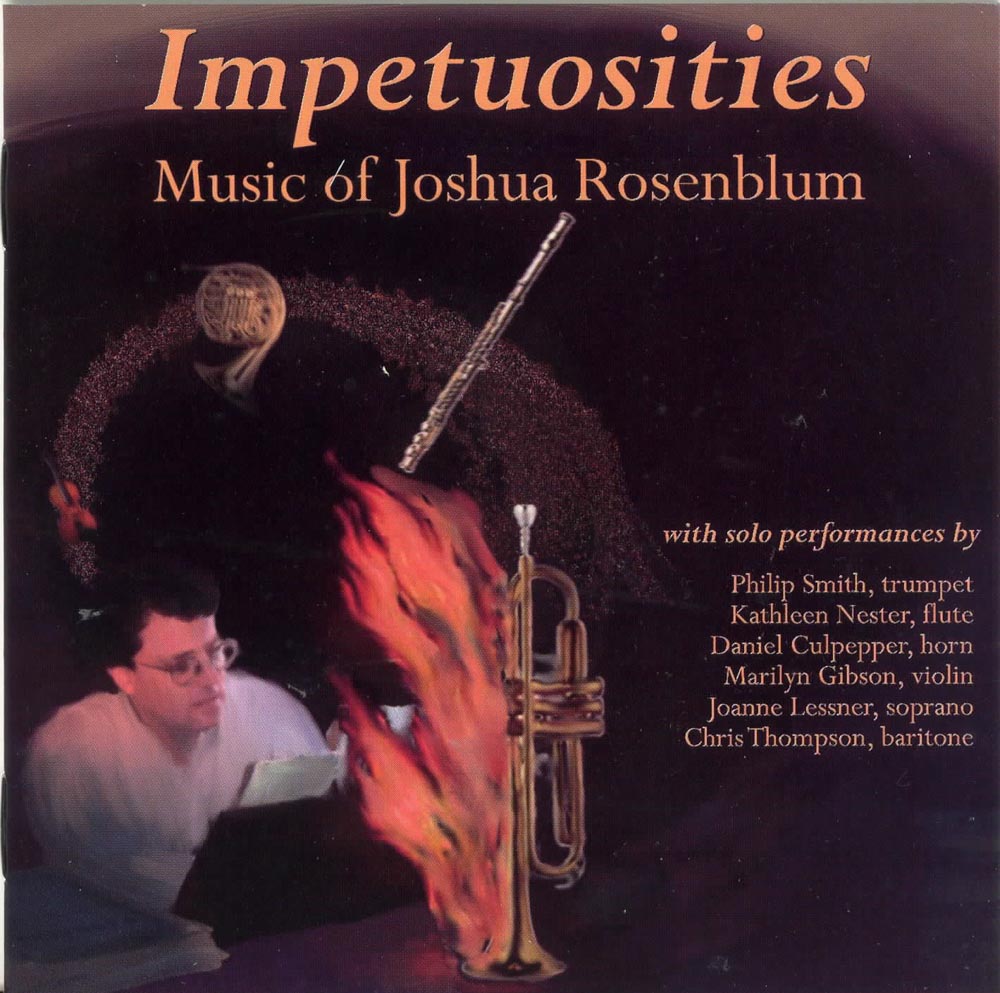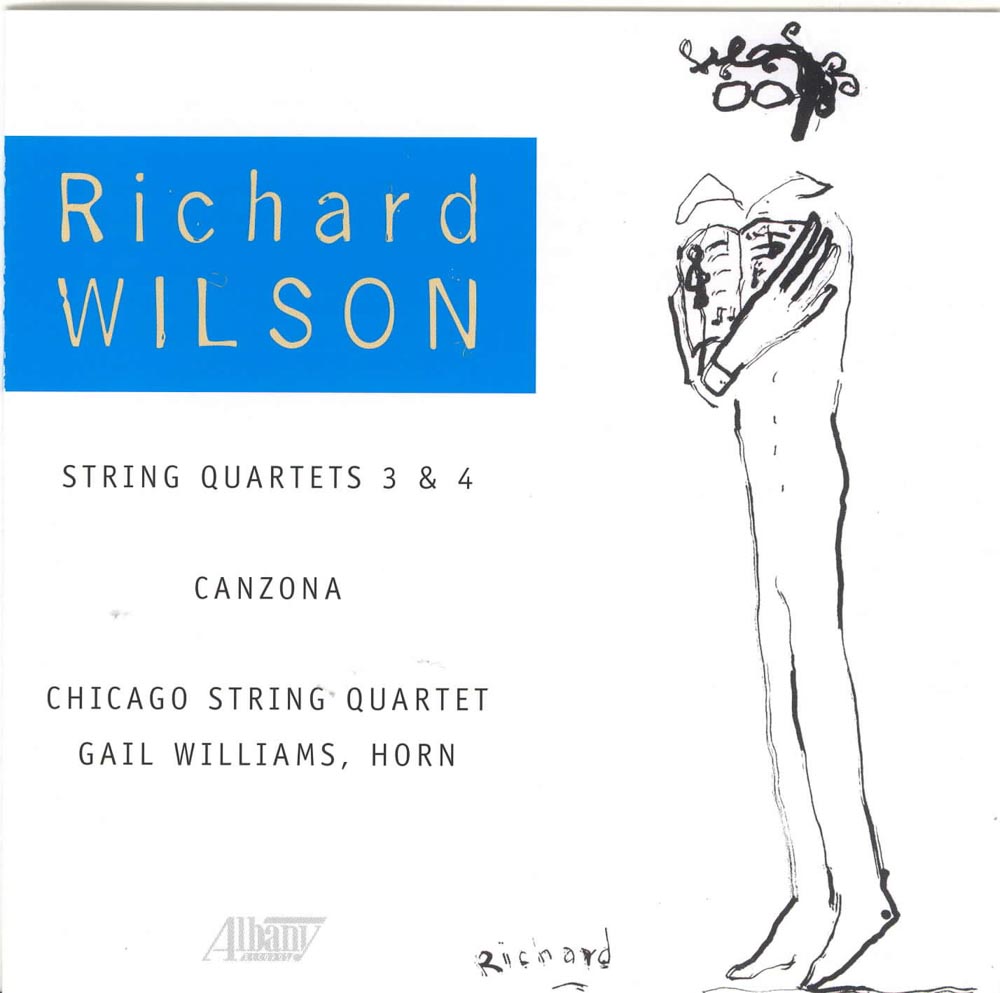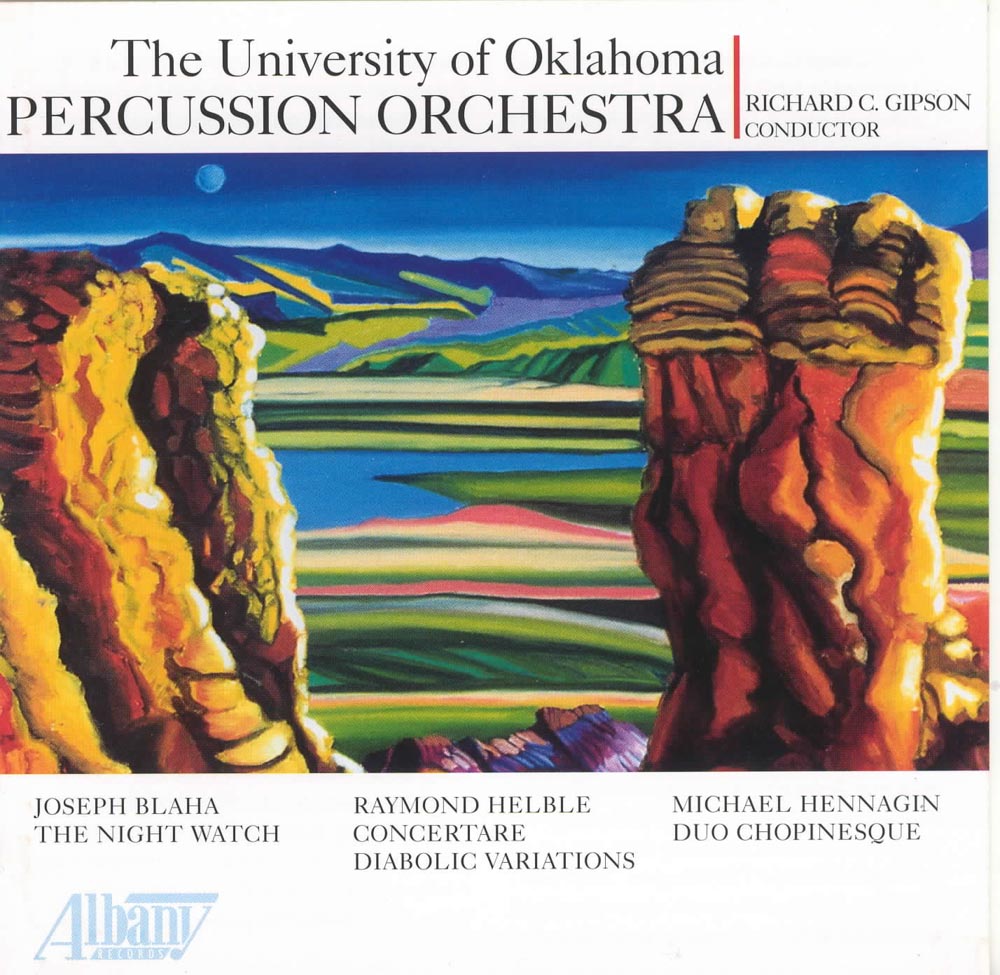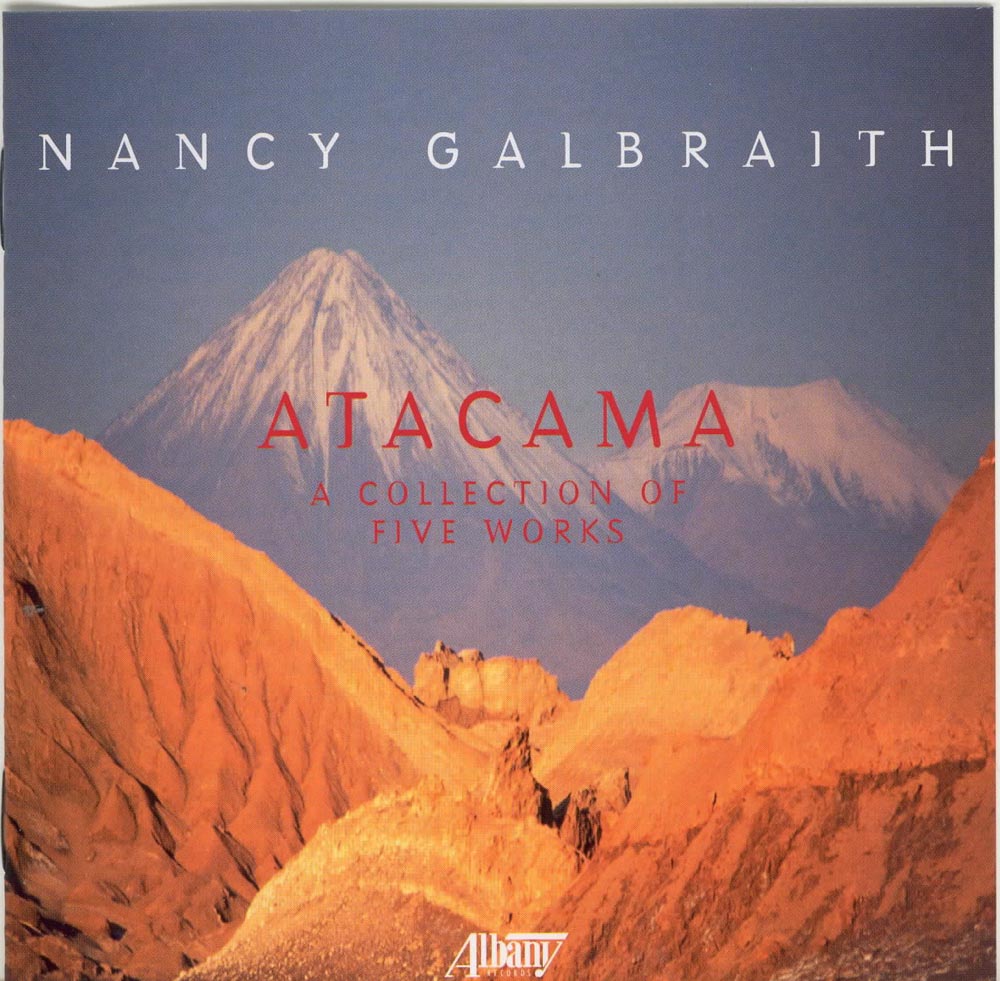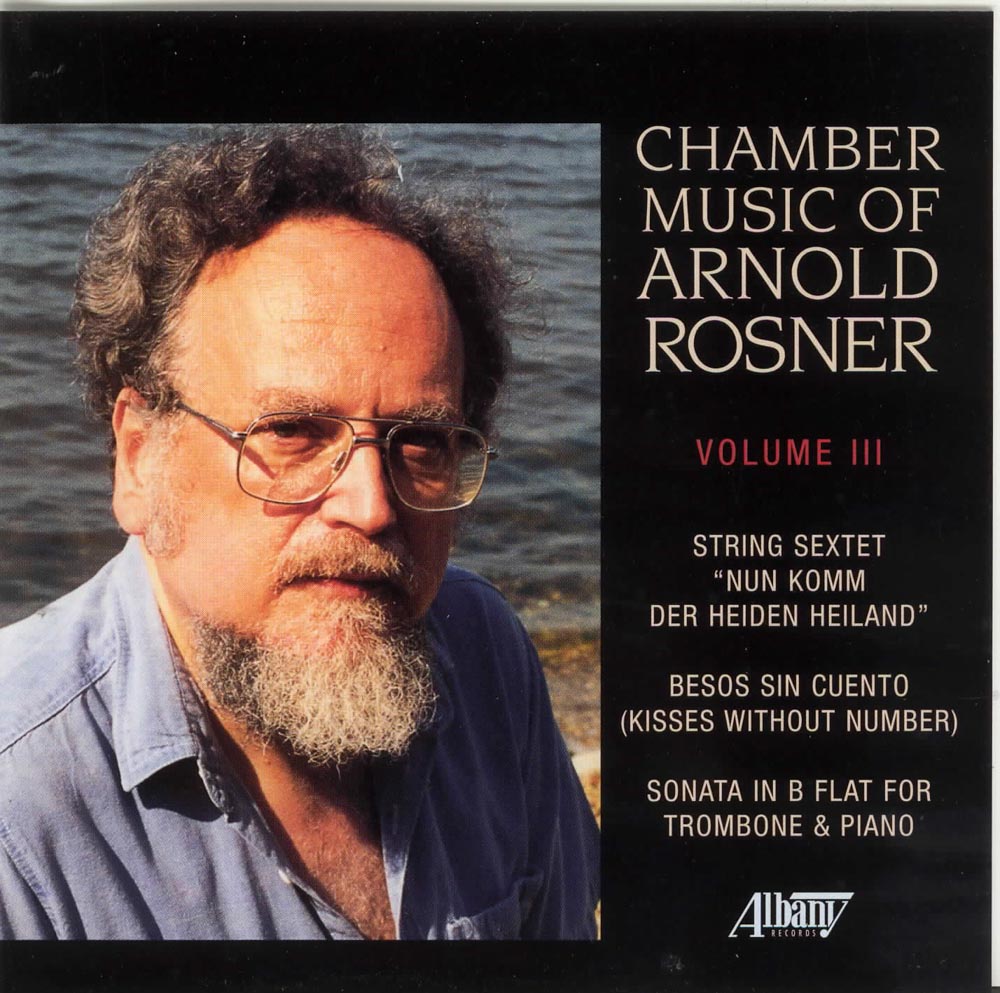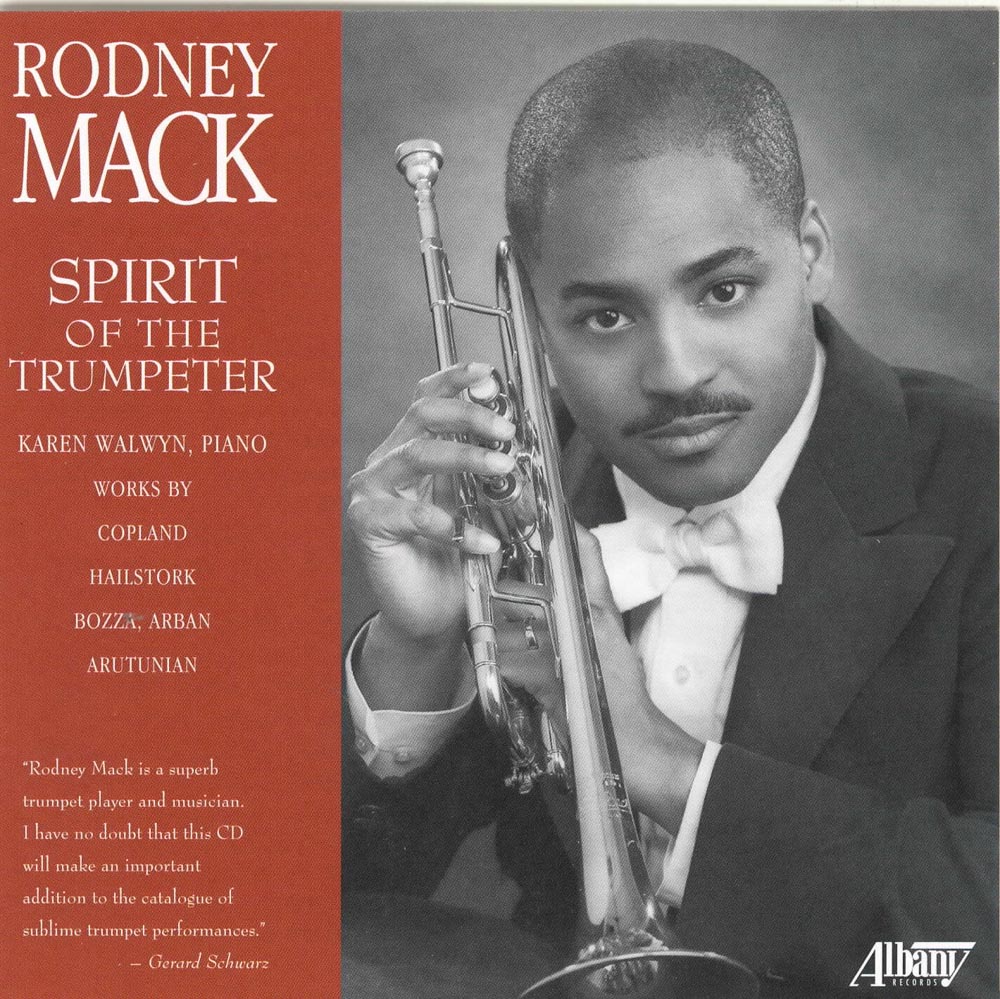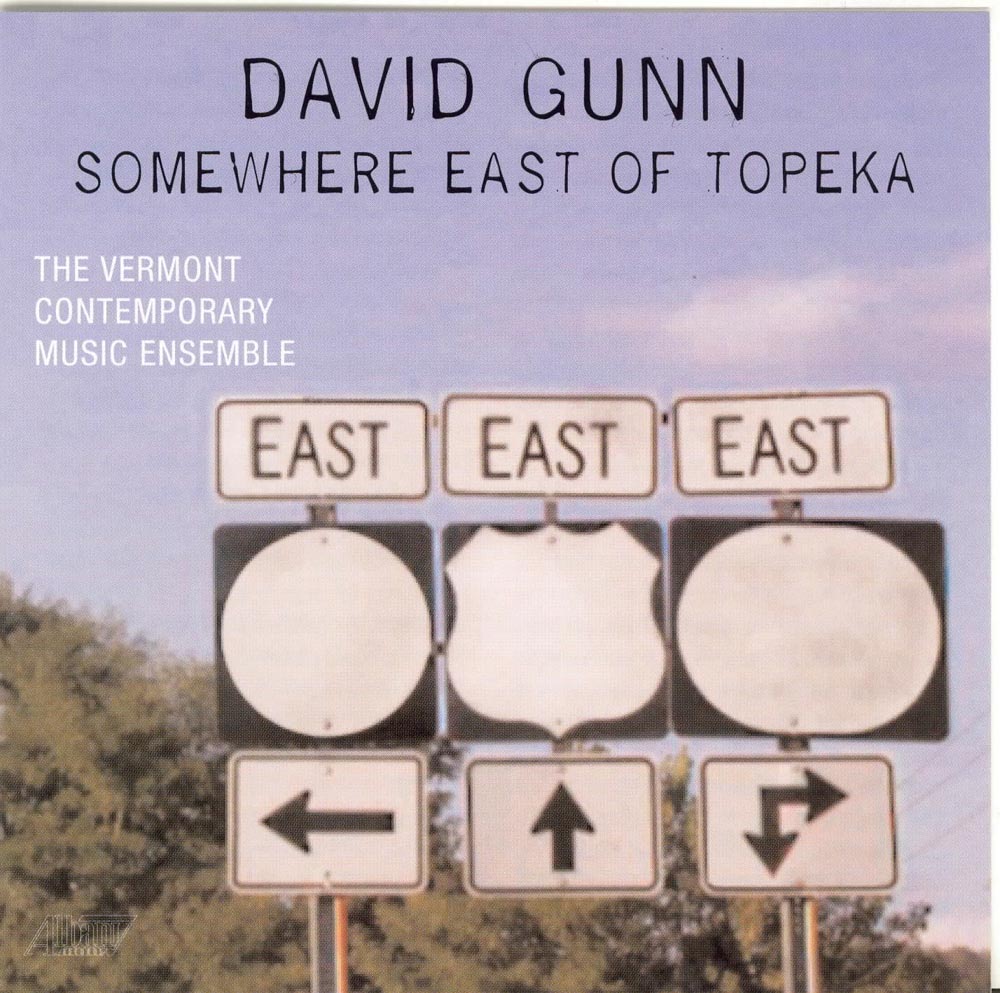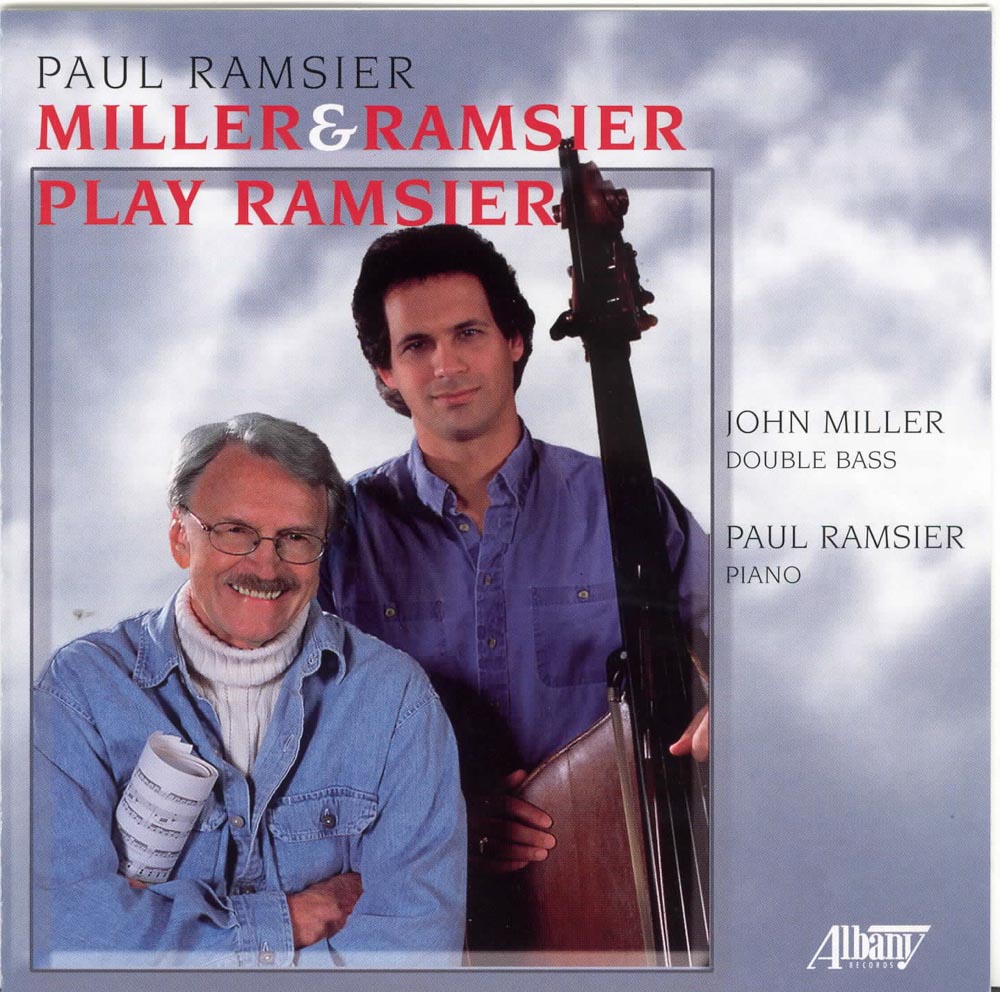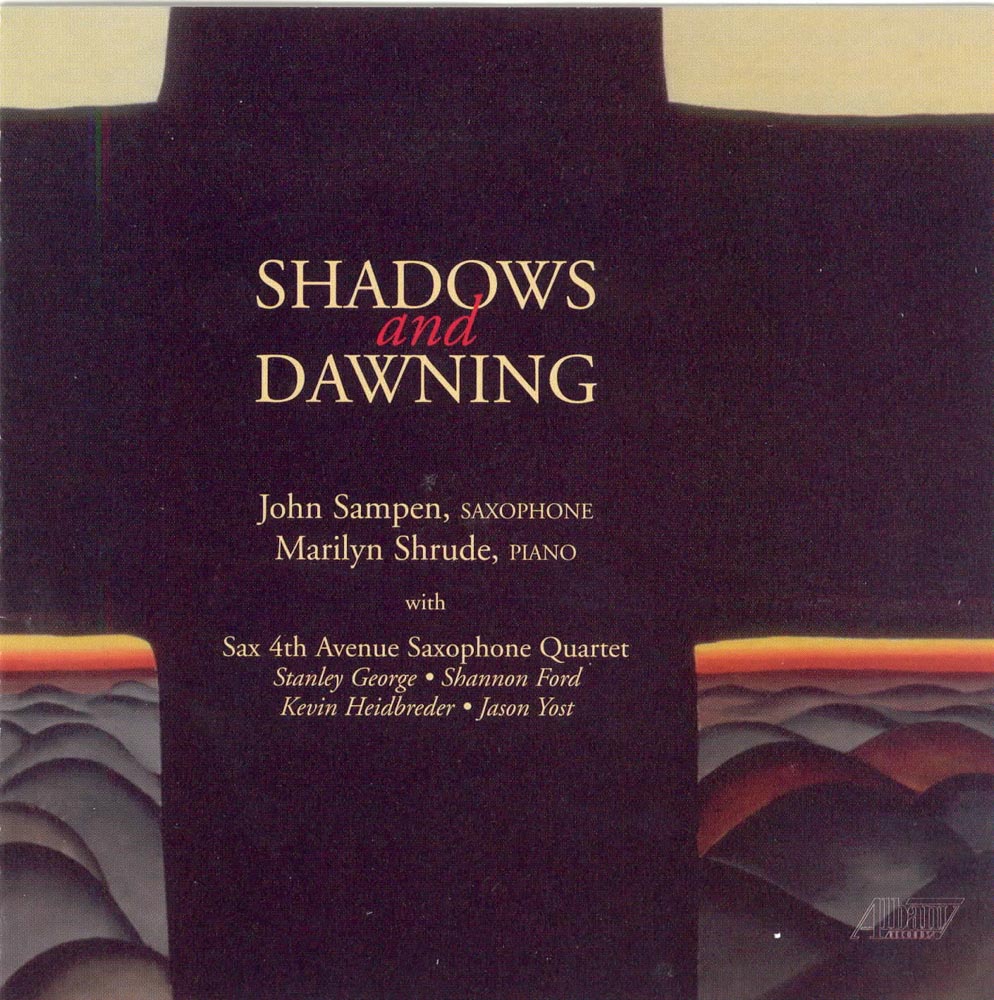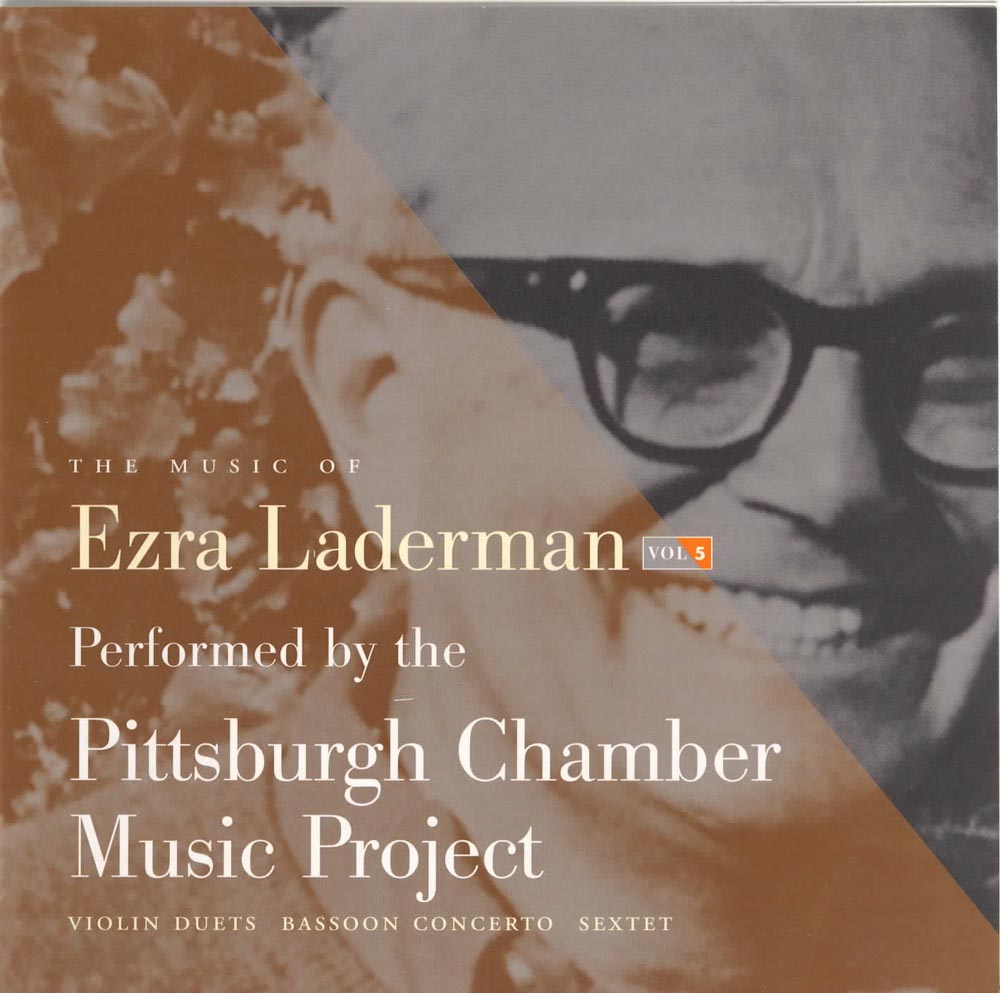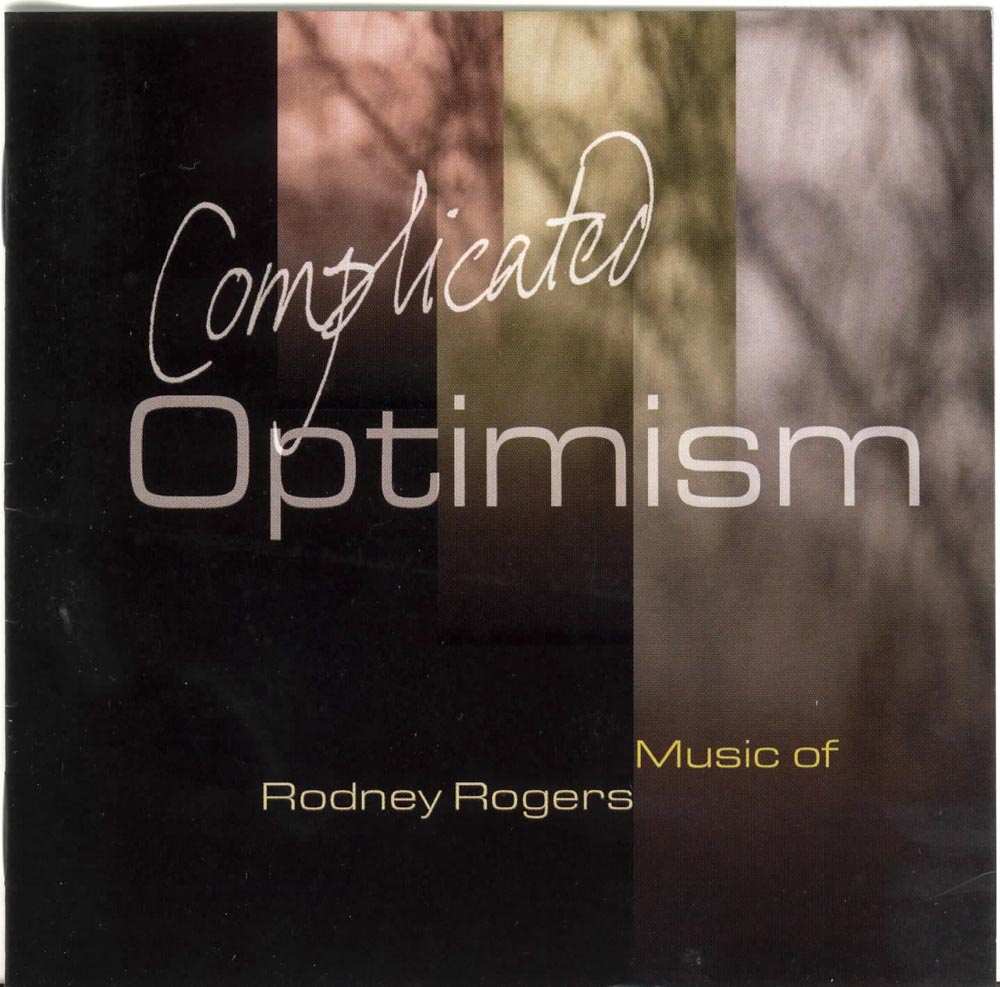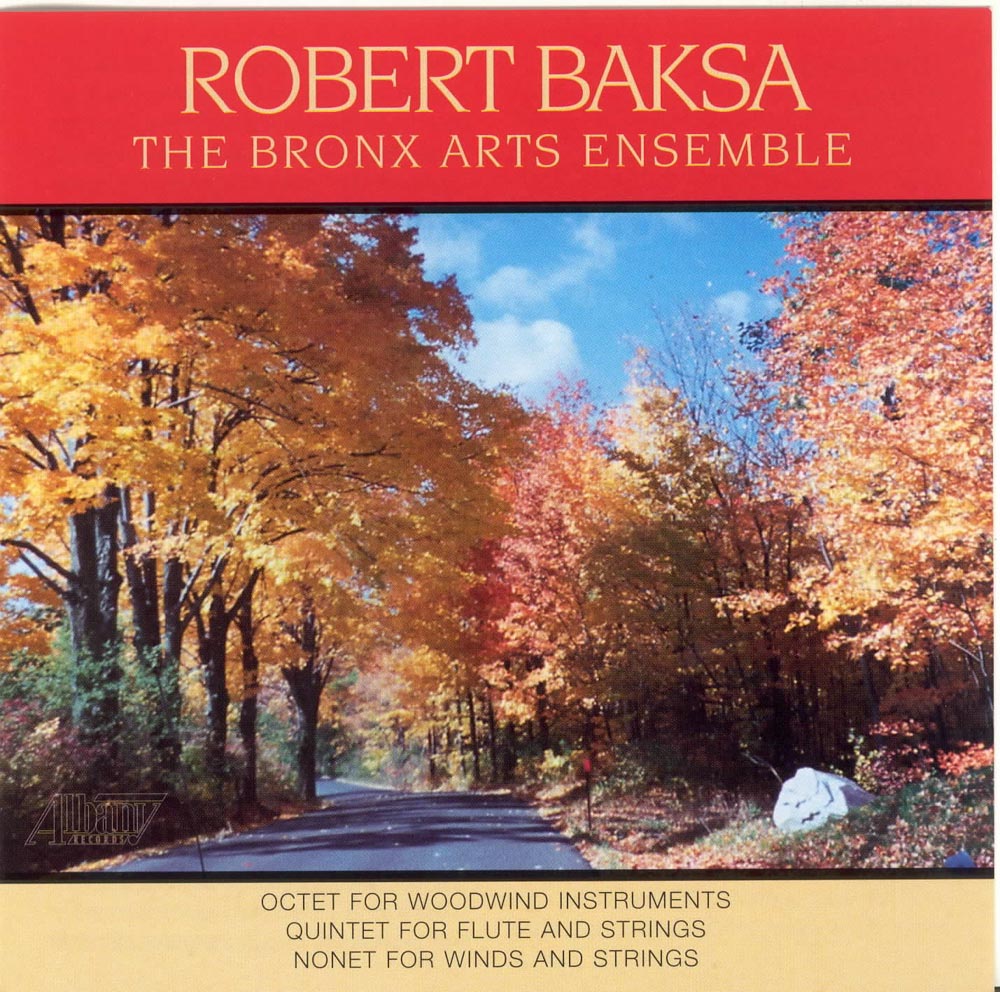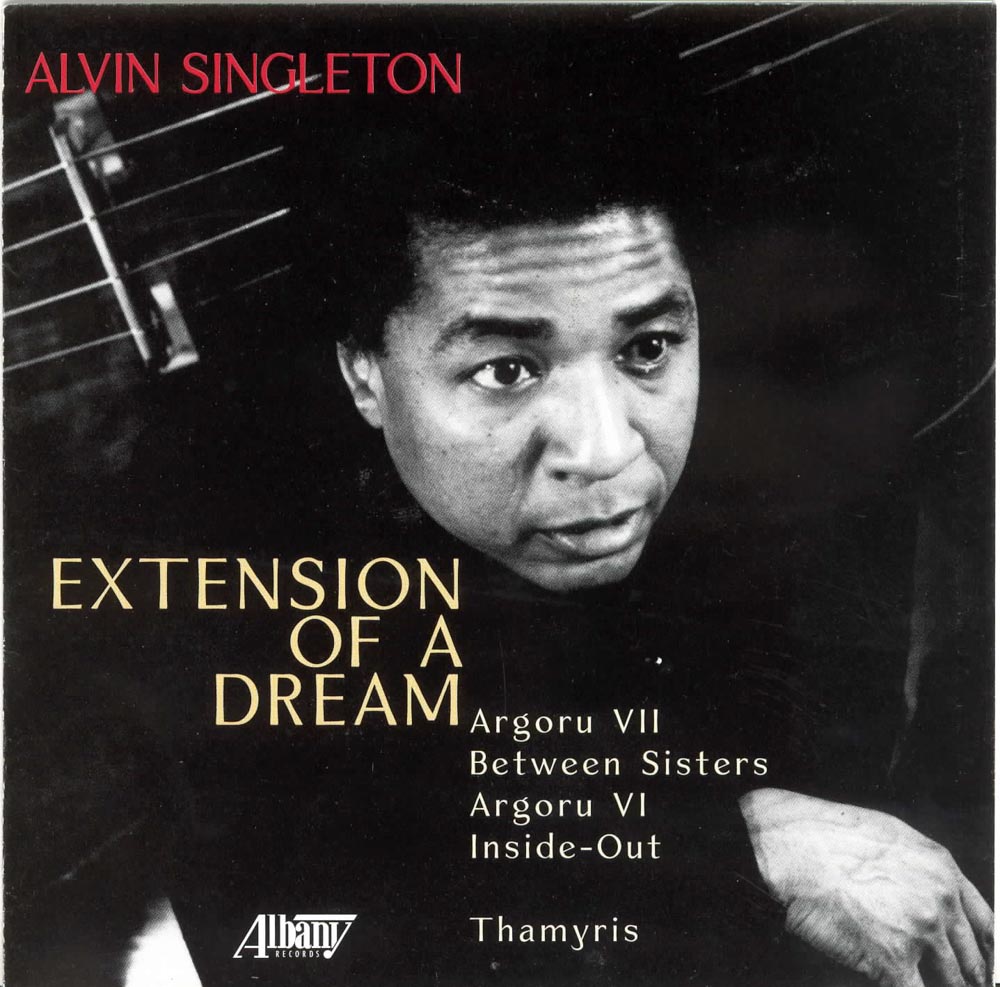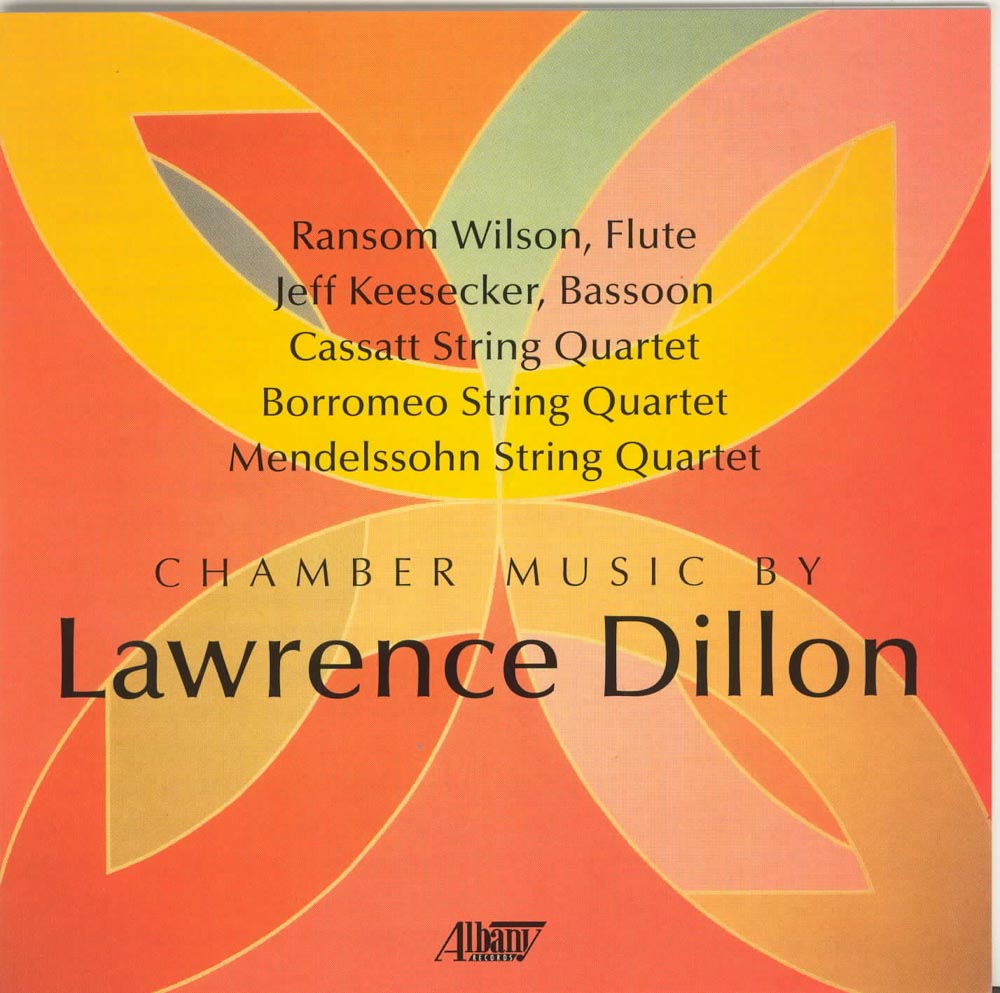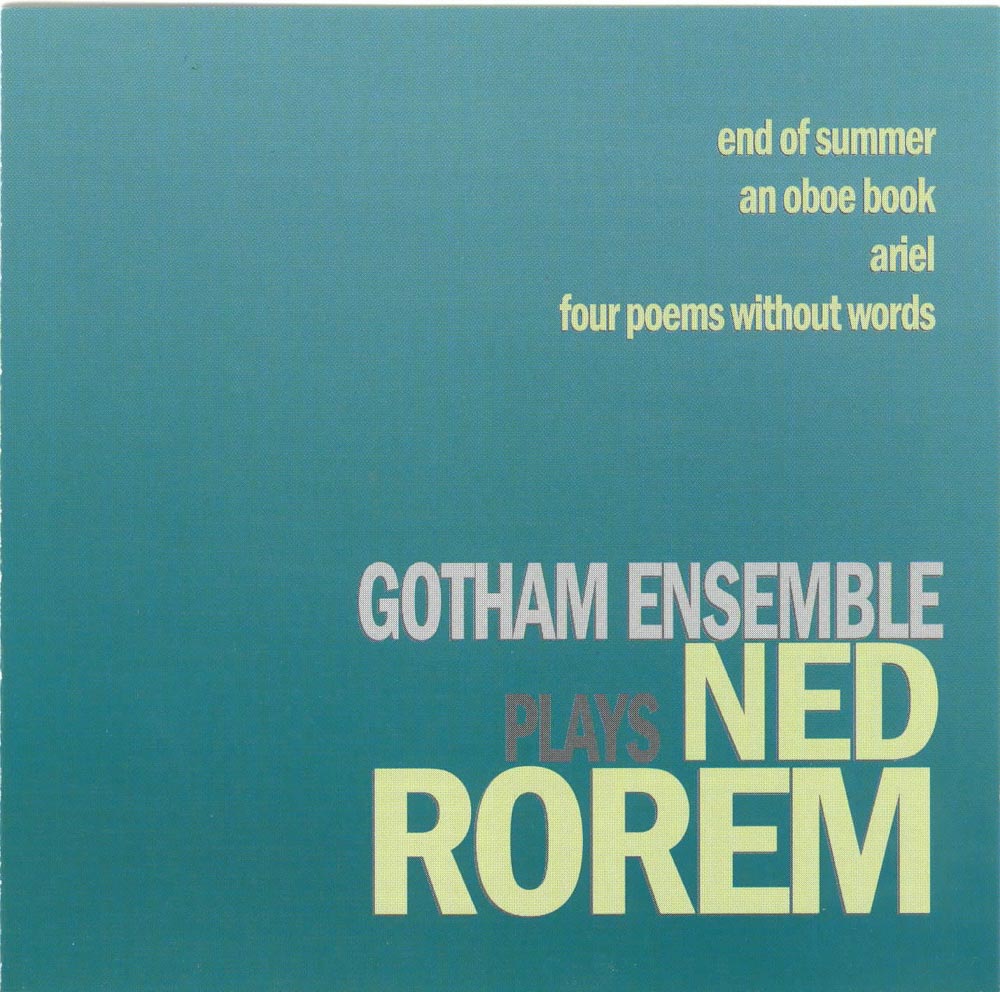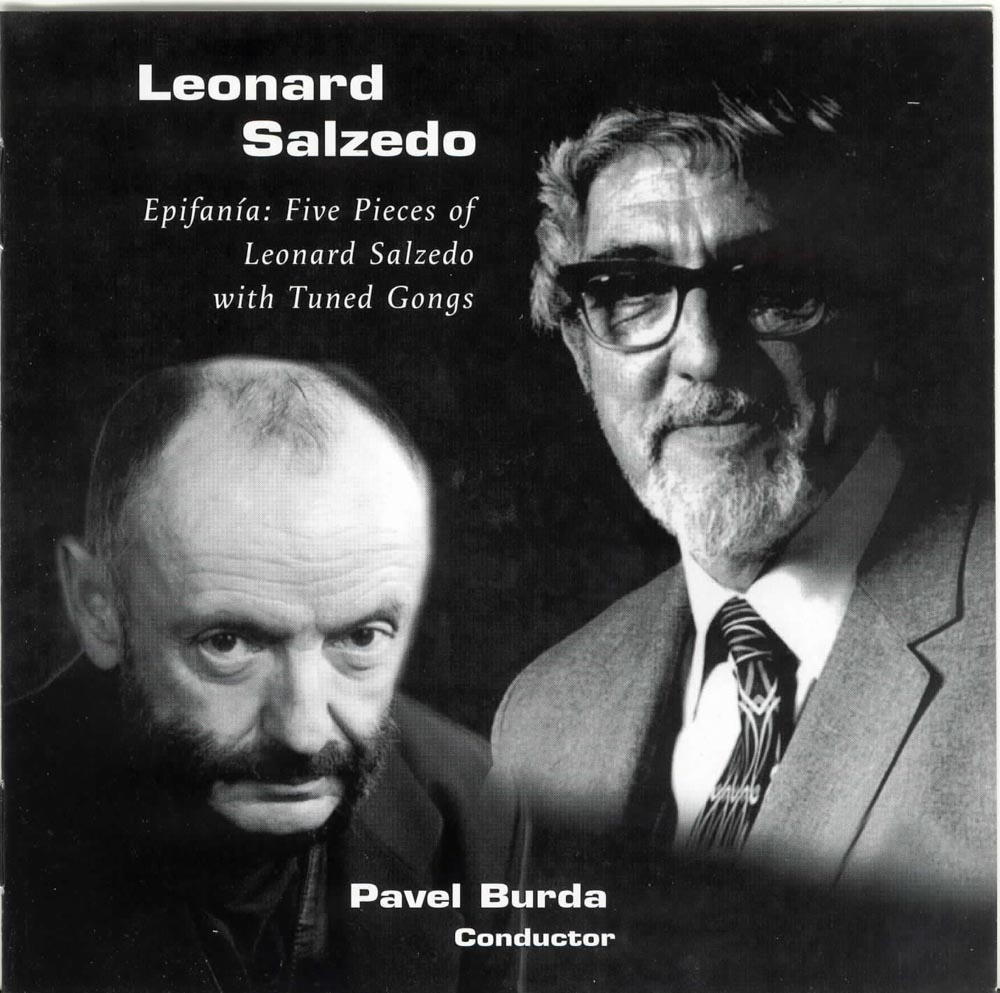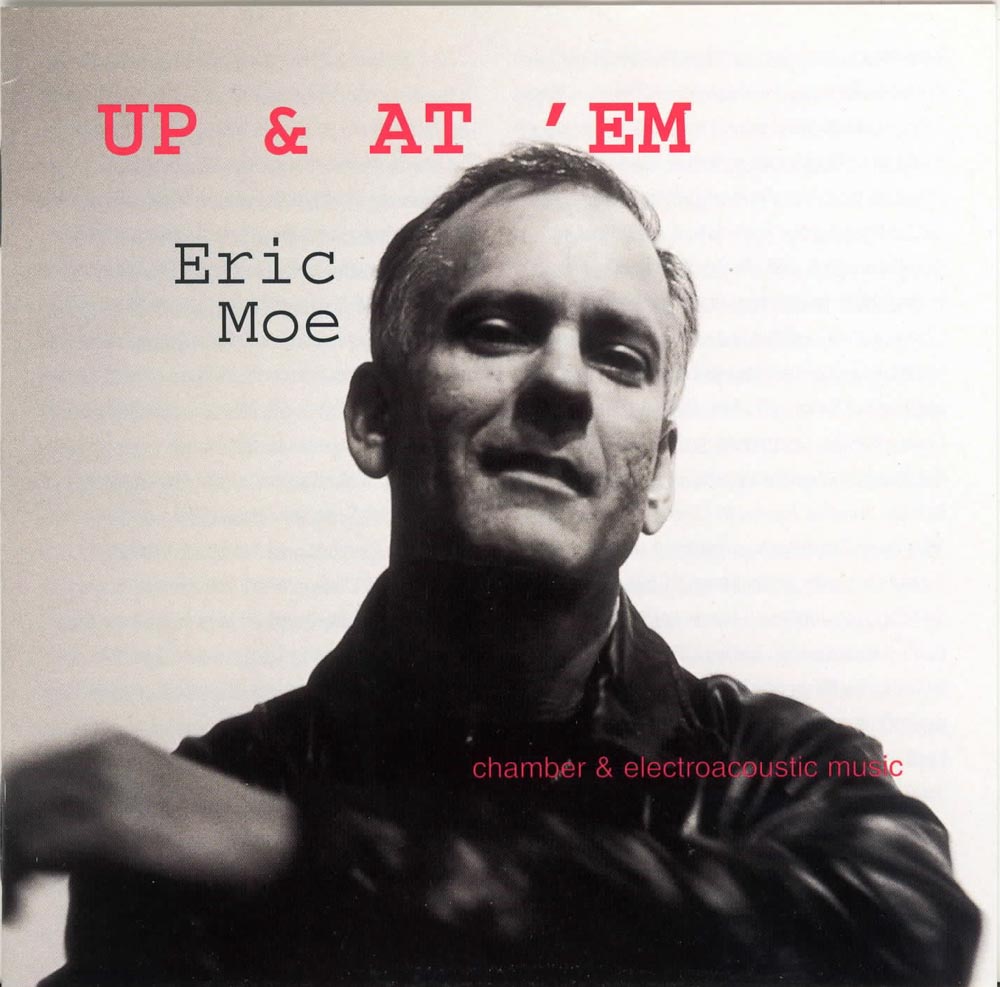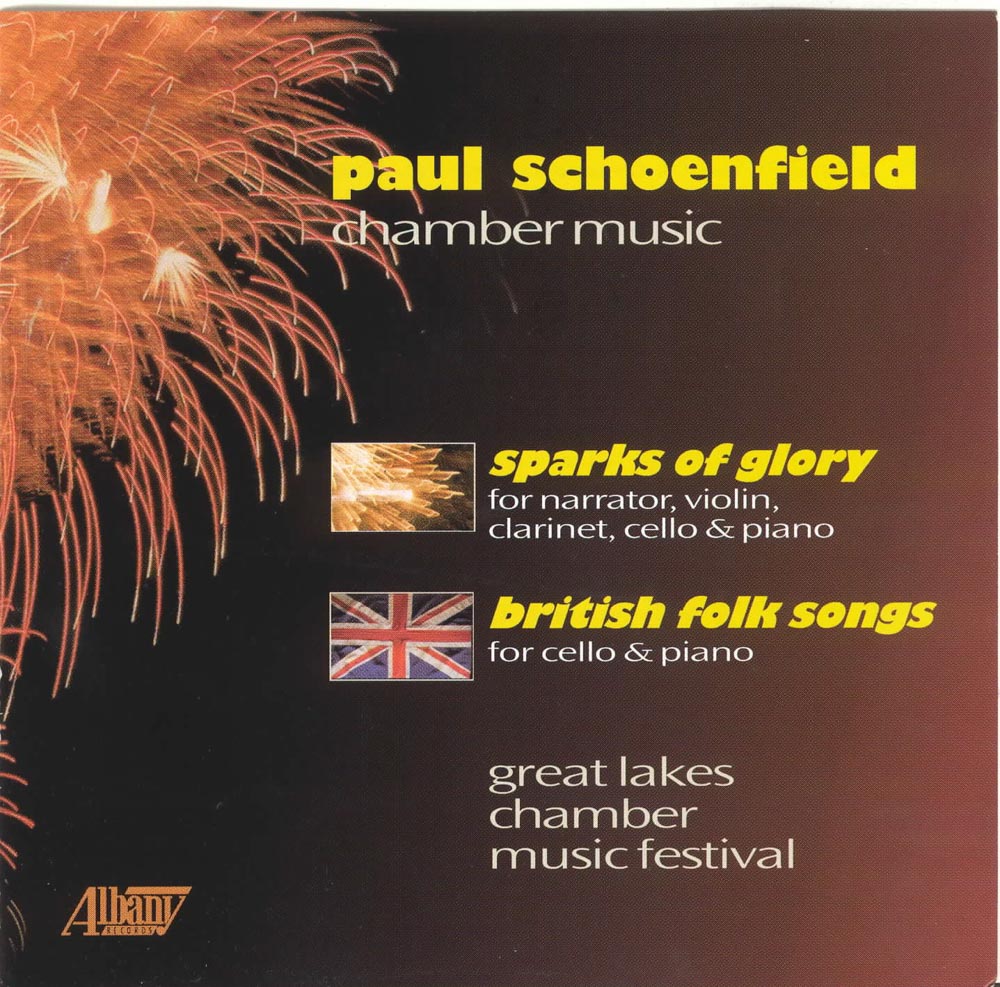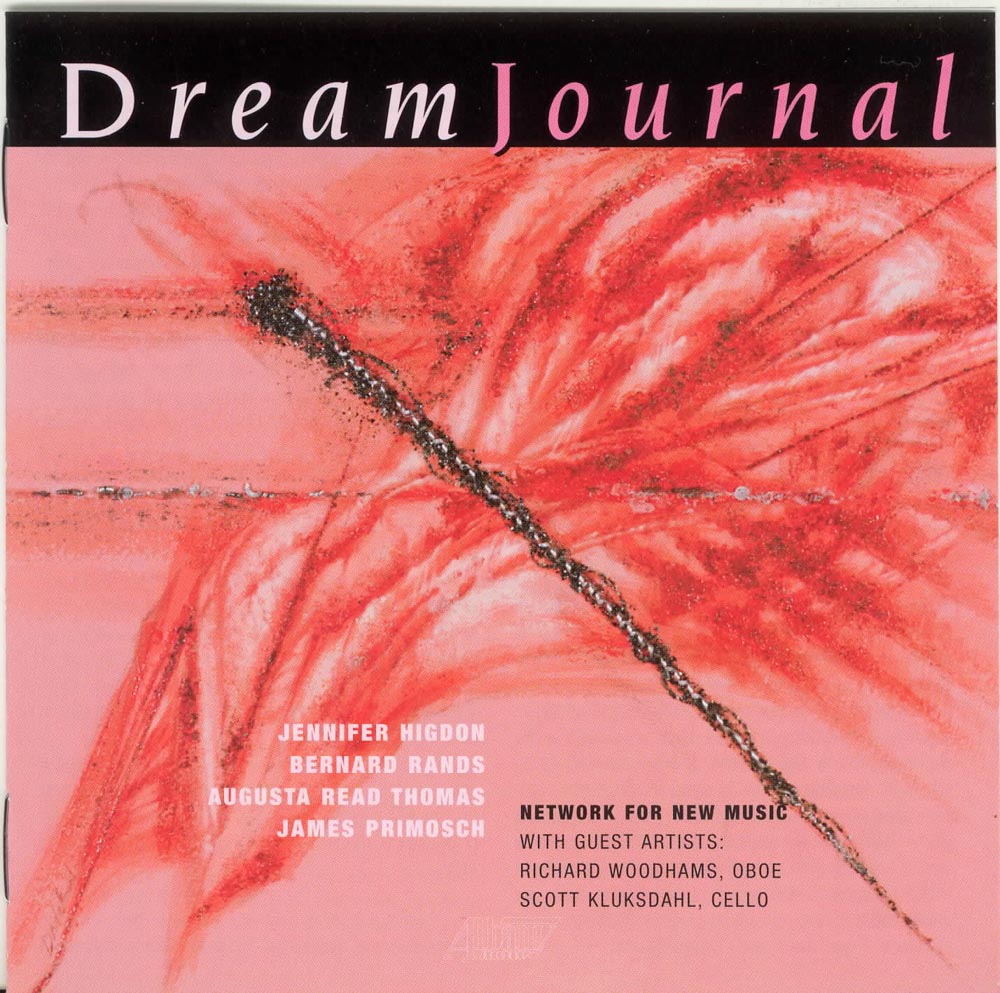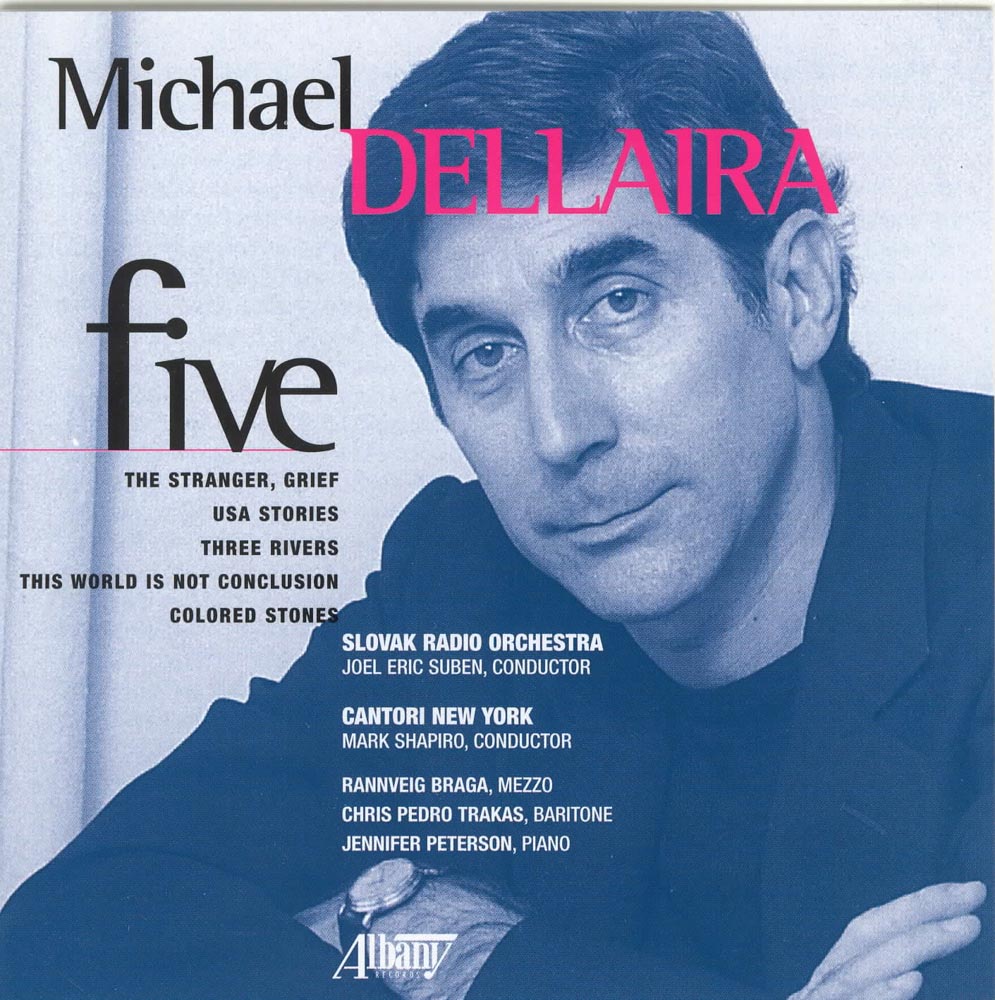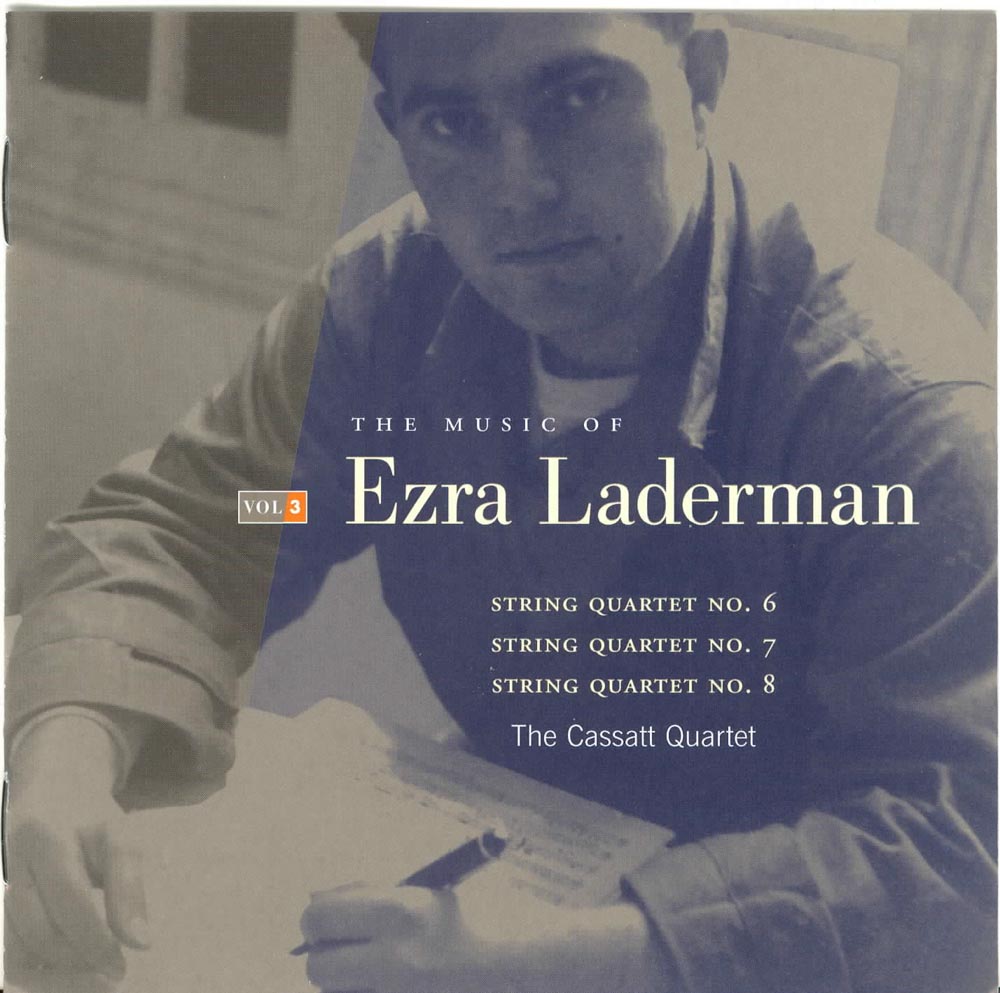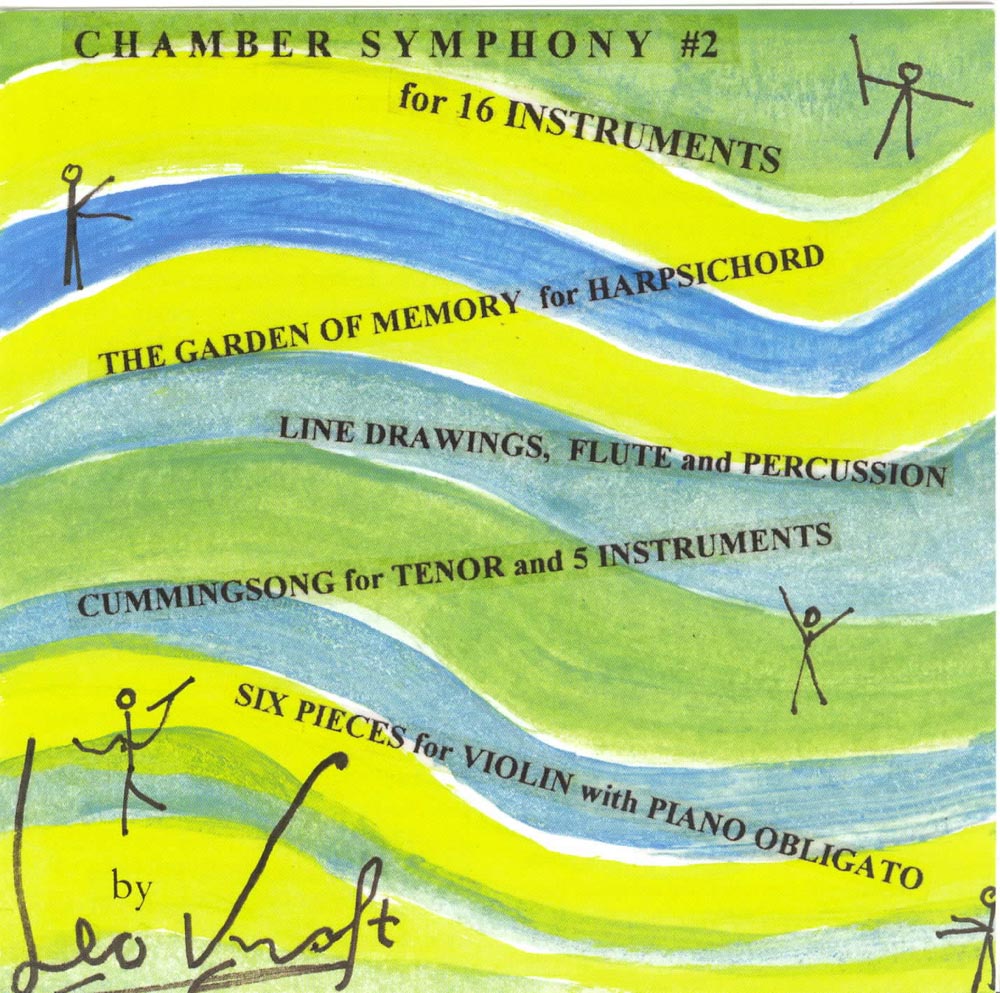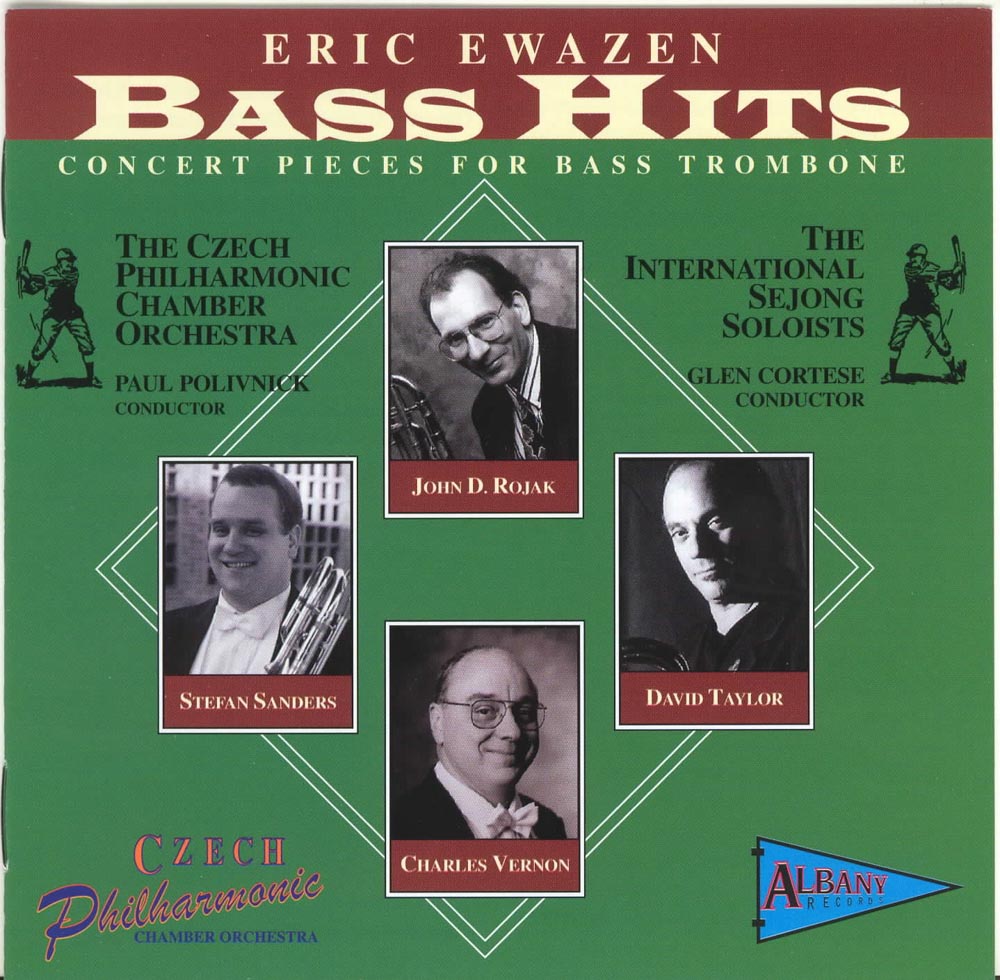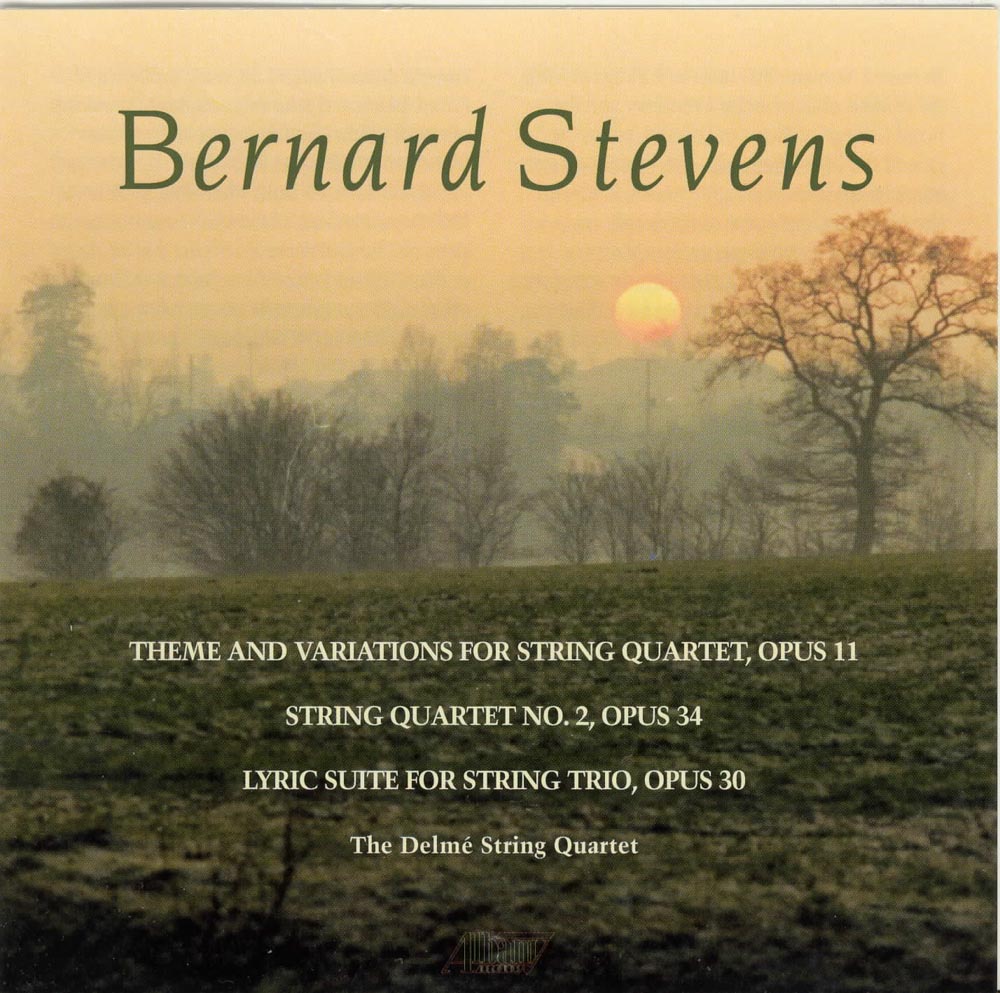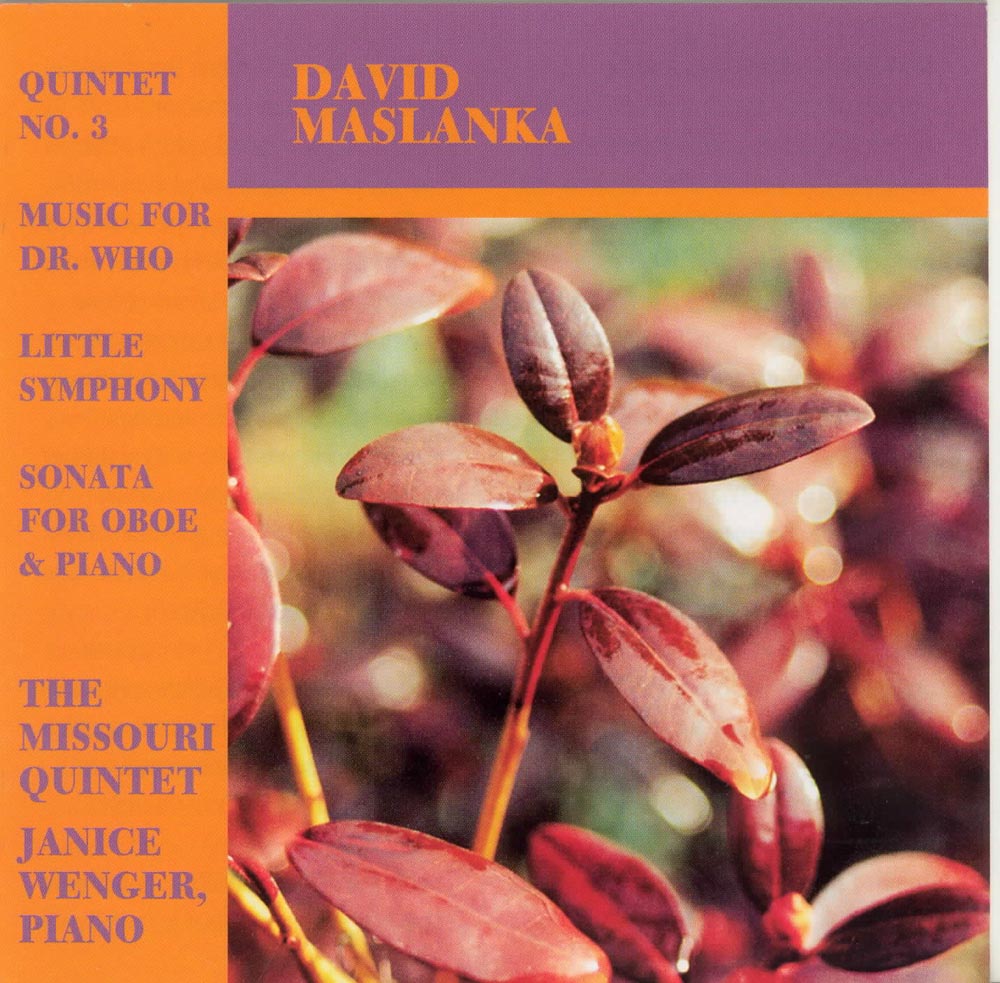Catalog #: TROY0588
Release Date: July 1, 2003ChamberSteven Mackey was born in Frankfurt, Germany to American parents. He attended the University of California for his BA, the State University of New York at Stony Brook for his MA and Brandeis University for his Ph.D. His first musical passion was playing the electric guitar in rock bands in northern California. He later discovered concert music and has composed for orchestra, chamber ensembles, dance and opera. Since the mid 1980's he has resumed his interest in the electric guitar and regularly performs his own work, including two concertos as well as numerous solo and chamber works. Mackey is currently Professor of Music at Princeton University where he has been a member of the faculty since 1985. He teaches composition, theory, twentieth century music, improvisation and a variety of special topics. As co-director of the Composers Ensemble at Princeton, he coaches and conducts new work by student composers as well as 20th century classics. Mackey writes: "I have always loved the string quartet. I was a musically illiterate, teenage rock musician when I first heard a string quartet and it deflected my fate towards concert music in general and composition in particular. The string quartet is a perfectly balanced ensemble in which each instrument can blend with the others or stand in relief, and where each has the possibility of infinite gradations of tonal nuance with a variety of bow strokes and placements, not to mention plucking. The quartet is capable of a wide range of expression, from light-hearted to profound and from bawdy to refined. We know this because some of the greatest music ever written - the greatest music imaginable - confirms these virtues."
Catalog #: TROY0583
Release Date: July 1, 2003ChamberJohn Marcellus is the current chair of the woodwinds, brass and percussion department at the Eastman School of Music, and has been professor of trombone and director of the Eastman Trombone Choir since 1978. He was formerly principal trombone of the National Symphony Orchestra and adjunct professor of music at Catholic University, where he was founder of the Catholic University Trombone Choir in 1969. He has been a soloist and clinician with orchestras, music festivals, and college and high school bands, and has led many brass workshops and master classes throughout the world. Marcellus has premiered numerous contemporary works for trombone and trombone ensemble. He is a member of the Eastman Brass Quintet and principal trombone of the Chautauqua Symphony Orchestra. He is also past president and a founding board member of the International Trombone Association. All of the other performers on this CD have had some association with the Eastman School of Music, having either taught there or graduated from the School.
Catalog #: TROY0582
Release Date: June 1, 2003ChamberComposer Samuel Adler was born in Mannheim, Germany, and came to the United States in 1939. He holds a bachelor's degree from Boston University, an MA from Harvard and four honorary degrees. During his service in the US Army he founded and conducted the Seventh Army Symphony Orchestra and was awarded the Army's Medal of Honor for that orchestra's impact on the European cultural scene. In 2001, he was inducted into the American Academy of Arts and Sciences. His catalog of compositions numbers more than 400 published works, including five operas, six symphonies, eight string quartets, 12 instrumental concerti, many shorter instrumental works, much choral music and published books on choral conducting, sight singing and orchestration. From 1966 until 1995, he was professor of composition at the Eastman School of Music. He has served as guest composer or conductor at over 300 colleges and universities world wide. He is now a member of the composition department at the Juilliard School.
Catalog #: TROY0529
Release Date: June 1, 2003ChamberIn the pieces presented here, four composers of different generations suggest a panorama of modern Romanian music in the last 70 years. The similarities and differences in style and expressive techniques do not always correlate with the time of their composition. In particular, the charming, specifically Romanian variety of impressionism in Martian Negrea's Suite contrasts radically with its contemporary, the abstract, incisive, ironic Sonata by Constantin Silvestri. The modernity of these pieces is deeply grounded in their original use of Romanian oral musical traditions from folk and Byzantine sources, of non-European traditions, and of representative 20th century musical landmarks such as Debussy, Stravinsky and Berg. The duo of Ray Jackendoff and Valentina Sandu-Dediu was founded in Berlin in 2000, where they were both Fellows at the Center for Advanced Study. What began as casual get-togethers to read chamber music quickly developed into intense and enthusiastic rehearsals. Valentina's husband, composer Dan Dediu started quietly dropping into their mailboxes, a few pages at a time, a new piece written for them. Soon plans were afoot for a number of concerts, and not long afterward, for the present recording, which offers first performances on CD of works by composers little known in the West.
Catalog #: TROY0569
Release Date: May 1, 2003ChamberAcclaimed by the San Francisco Chronicle as "one of the great quartets of our times," the Pro Arte Quartet has enjoyed a long and distinguished career as one of the most enduring string quartets in existence. Founded in Brussels in 1912 by violinist Alphonse Annou and violist Germain Prevost, the Pro Arte became the court quartet to Queen Elisabeth of Belgium. Its world reputation soared with a European tour in 1919, earning the group such outstanding acclaim that many composers - including Bartok, Milhaud, and Honegger - composed new works for the Pro Arte. In 1940, stranded in the United States by the outbreak of World War II, the University of Wisconsin-Madison offered the Quartet the position of Artist-in-Residence, which continues to the present day. Current members, David Perry and Suzanne Beia, violins, Sally Chisholm, viola, and Parry Karp, cello, have continued the Pro Arte legacy. The guest artist on this CD, Samuel Rhodes, has been a member of both the Juilliard String Quartet and the faculty of the Juilliard School since 1969. His Quartet was written while he was studying for his Master of Fine Arts degree at Princeton (with Roger Sessions) shortly before he joined the Juilliard String Quartet. Sessions's influence is very much felt in the piece, especially in the first movement.
Catalog #: TROY0571
Release Date: April 1, 2003ChamberJoshua Rosenblum is a composer, pianist and conductor. He is a graduate of Yale College and the Yale School of Music. He is the composer and co-lyricist of the cult hit musical Fermat's Last Tango, which enjoyed a successful Off-Broadway run at the York Theater, as well as the forthcoming musical Einstein's Dreams, based on the best-selling novel by Alan Lightman. Equally comfortable in the contemporary classical idiom, he has written numerous commissions and has received awards from ASCAP and Meet the Composer. His choral setting of "Jabberwocky" won the Ithaca College Choral Composition Contest, out of 200 entries nationwide. Rosenblum has conducted ten Broadway and Off-Broadway shows, including Miss Saigon, The Music Man, Anything Goes and Falsettos. He has appeared as pianist with the New York Pops and the American Symphony Orchestra. He is also highly sought after as an exponent of experimental, innovative, and unusual works of new music theater. He is also a music journalist who has written articles for Newsday, Stagebill and reviews for Opera News.
Catalog #: TROY0573
Release Date: March 1, 2003ChamberRichard Wilson is the composer of some eighty works in many genres, including opera. A Phi Beta Kappa graduate of Harvard, Mr. Wilson holds the Mary Conover Mellon Chair in Music at Vassar; he is also Composer-in-Residence with the American Symphony Orchestra for which he gives pre-concert talks. He has been a member of the program committee of the Bard Music Festival since its inception. His String Quartet No. 3 was commissioned for the Muir String Quartet by the Walter W. Naumburg Foundation. The Muir gave the first performances at Yale and Vassar in April, 1983 and recorded the work for CRI. In July, 1984, the Delme Quartet gave the London premiere in Wigmore Hall. The String Quartet No. 4 was commissioned for the Chicago String Quartet by the Prince Charitable Trusts and the Chicago Chamber Musicians. The world premiere of the four-movement version took place at the 92nd Street Y, New York City, on January 17, 1998. The five-movement version (the version presented here) was premiered at Vassar College on February 17, 2001. In both instances, The Chicago String Quartet performed. Canzona for Horn and String Quartet was written in 2001 in memory of Luise Vosgerchian, who died in March, 2000. The composer writes: "Ms. Vosgerchian taught music at Harvard for thirty-one years beginning in 1959, the year I became a student there. A charismatic performer, lecturer and mentor, she was an inspiration to hundreds of young musicians at Harvard, Tanglewood and in the Boston area." The work received its first performance at Vassar College on February 8, 2002, by the same performers who have recorded it here.
Catalog #: TROY0567
Release Date: March 1, 2003ChamberJoseph Blaha is currently assistant professor of music and director of bands at Roanoke College in Salem, Virginia. In 1983, he enrolled as a doctoral student in composition at the University of Oklahoma and studied with Michael Hennagin earning a DMA in 1991. Raymond Helble, a native New Yorker, studied at the Eastman School of Music with Sam Adler, Wayne Barlow and Joseph Schwantner. A highly polished finish, elaborate motivic development, contrapuntal dexterity, and a concentrated intensity of expression, mark Helble's work, whether he uses tonal, serial, modal, or atonal materials to fashion his work. Born in The Dalles, Oregon, Michael Hennagin composed in virtually every medium including music for film, television, and stage. His broad repertoire includes instrumental and vocal solos, various chamber ensembles, symphonic band, orchestra, and a large body of choral music for which he is widely recognized. He joined the faculty of the University of Oklahoma in 1972 and retired in 1992 to devote full time to his active composing schedule. He died suddenly in June 1993.
Catalog #: TROY0556
Release Date: February 1, 2003ChamberNancy Galbraith has emerged as one of the present era's most original and influential musical voices. Her distinctive American style employs an exotic array of postmodern and postminimalist elements including lyricism, polyrhythmic and diatonic harmony. Her work has been praised for its energetic combination of melody and rhythm, and its bright orchestral palette. She is currently recognized as a leader in the field of wind ensemble writing. Her compositions for this genre have become standard repertoire for ensembles throughout the United States and appear on many recordings. She is also an accomplished organist and pianist and has composed a number of works for these instruments. She was born in Pittsburgh and educated at Ohio University, West Virginia University, and Carnegie Mellon University, where she presently serves as Professor of Composition and Theory.
Catalog #: TROY0553
Release Date: February 1, 2003ChamberThe composer writes: "Attracted I guess to the Dvorak Sextet and the two by Brahms, I ventured in 1970 to write a Sextet of my own. From the outset, I wanted the added symphonic richness afforded by six parts, but with each of the players having plenty of developmental and contrapuntal linear activity. The Lutheran hymn, Nun Komm der Heiden Heiland stimulated me, much more in the mid-Baroque setting by Praetorius than in the fully-tonal (and thus predictable if better known) J.S. Bach version. I decided to make this tune the crown of the Sextet. My Spanish Songs Besos sin Cuento resulted from two motivations, and it should be admitted from the outset that I have absolutely no knowledge of the Spanish language other than certain culinary terminology. For some time, I was drawn to the remarkable songs in the Sephardic tradition more than 500 years old and my motivation was to find some poetry of this heritage that had not yet been musically set. As I have felt driven to compose songs in as many languages as possible, I have also wanted to write sonatas or concertos for all the standard orchestral instruments. Over many years, I realized I had come fairly close, and decided in the mid 90s to fill in the gaps, at that time clarinet, bassoon, trombone and double bass. As of this writing (2002) only bassoon and double bass remain. The power and nobility of the trombone cannot and should not be denied, and my sonata, therefore, is rather
Catalog #: TROY0552
Release Date: February 1, 2003ChamberThe sound of Rodney Mack's trumpet has reverberated throughout the world; whether playing baroque piccolo trumpet or interpreting works commissioned especially for him. He was born in New Orleans where he began his musical studies at the age of six. When he was eleven, he began taking classical trumpet lessons with his cousin, Wynton Marsalis. He made his solo debut with the New Orleans Symphony at the age of fifteen. At the age of nineteen, he performed as a soloist with the Boston Pops. Classical concert pianist Karen Walwyn made her New York recital debut at Merkin Hall. The concert was quickly followed by her debut performance on National Public Radio. She has served on the faculties of the School of Music at the University of Michigan in Ann Arbor and at Southwest Missouri State University in Springfield.
Catalog #: TROY0535
Release Date: January 1, 2003ChamberDavid Ross Gunn began his musical training at Settlement Music School in Philadelphia, studying piano and percussion. He later graduated from Ohio State University with a degree in music composition. It's easy to be dismissed as trivial when your music is attractive, and with David Gunn's music, that would mean missing out on its real attraction. Long before it was fashionable, Gunn used clear-cut rhythms, evident melodies, and explicit harmonies - all while moving music forward into new territory, not backward into some neo-romantic haze. Besides being a composer, Gunn is also a writer, humorist, a new music radio show co-host. He currently lives in the middle of Vermont and in hope of, in order, peace on earth, good will towards men, and a pile of cash in the bank.
Catalog #: TROY0555
Release Date: December 1, 2002ChamberRecently hailed for her "unparalleled artistry," Julianne Baird, soprano, is "one of the most extraordinary voices in the service of early music." Her busy recital and oratorio schedule includes recent appearances in Lincoln Center, Philadelphia's Academy of Music, Symphony Hall in Chicago, Severence Hall, and the Kennedy Center. James R. Oestreich, in his comprehensive survey of New York's seasonal performances of Handel's Messiah for The New York Times, recently concluded with special praise for Julianne Baird's interpretive skills: "in that respect, Ms. Baird remains the model." Darin Kelly enjoys a reputation as one of the Philadelphia area's foremost soloists in the Baroque repertoire. Stephen Alltop enjoys a busy career performing with modern and period ensembles as a keyboard artist and conductor.
Catalog #: TROY0554
Release Date: December 1, 2002ChamberPaul Ramsier's doublebass compositions have established the composer as a major figure in the evolution of the instrument. His larger compositions are the most widely performed contemporary works for doublebass and orchestra. These compositions have set new standards for the instrument through more than one hundred fifty performances with orchestras. In the fall of 1999, Ramsier moved from New York City to Sarasota, Florida, where, he says, "I discovered that John Miller, principal bass of the Florida West Coast Symphony, is a world-class soloist of rare gifts." During the summer of 2001, Miller suggested that he and Ramsier make a recording of some of the composer's compositions for doublebass that had not been recorded. Ramsier was initially hesitant to practice the piano again, but Miller and others felt that a composer's participation adds a touchstone for performers - especially when compositions are published - and becomes a historical reference as well. This new CD is the result of this collaboration.
Catalog #: TROY0526
Release Date: December 1, 2002ChamberSaxophonist John Sampen is dedicated to the promotion and performance of contemporary art music. His sponsorship of new music has resulted in premieres of over sixty works, including commissions by Rands, Subotnick, Cage, Adler and Babbitt. He has also premiered first performances of saxophone arrangements by Lutoslawski, Stockhausen and Tower. Dr. Sampen is presently Distinguished Artist Professor at Bowling Green State University and past-president of the North American Saxophone Alliance. Composer/pianist Marilyn Shrude is an active proponent of contemporary music in America and she has won a Kennedy Center Friedheim Award for Orchestral Music. Her compositions are recognized for their "shimmering sounds" and "sensuous beauty." She served as chair of the Theory and Composition Department at Interlochen Arts Camp and was a visiting faculty member at Indiana University. She is currently Distinguished Artist Professor and chair of the Musicology/Composition/Theory Department at Bowling Green State University. She has been performing with John Sampen since 1972.
Catalog #: TROY0544
Release Date: November 1, 2002ChamberPilgrim Chamber Players was founded in 1996, and began its journey as a woodwind quintet. Very quickly the group expanded its programming to include strings, keyboard and voice. Pilgrim Chamber Players' talented ensemble of professional musicians are resident artists of the Highland Park (Illinois) Community House and perform throughout the Chicago area. The group is here pleased to present this collection of compositions by its resident composer, Donald Draganski. As one of the founding members, Draganski's role evolved from principal bassoon player to that of composer-in-residence. Earning his Bachelor of Music degree from DePaul University, he studied bassoon under the late Wilbur Simpson and composition with the late Alexander Tcherepnin. After receiving his Master's of Library Science, he was the music librarian at Roosevelt University, a position he held for 25 years until his retirement in 1998. Born in Chicago, he currently makes his home in Evanston.
Catalog #: TROY0537
Release Date: November 1, 2002ChamberFor five decades Ezra Laderman has been privileged to be performed by the musicians of Pittsburgh. The Pittsburgh Symphony has collaborated with him a number of times; in 2003 the orchestra will feature its bass clarinetist, Richard Page, in a new Laderman concerto that it has commissioned. Other of the city's ensembles over the years have been equally staunch supporters of the composer's work. The newest of them, The Pittsburgh Chamber Music Project, commissioned and premiered Laderman's 1997 Sextet for English horn, bass clarinet and string quartet. Laderman is an attentive collaborator. He gets to know the musicians as people, and in composing his works often chooses the performer's personalities as a point of departure. Certainly he has done so in a number of his string quartets, a genre for which he is deservedly celebrated. The composer's Violin Duets were composed in 1998. Like the works by Bartok and Berio, they are miniature meditations, each composed in a single session, a day, a few hours, that performed together accumulate artistic weight through comparison and contrast. A year after graduating from Columbia University in 1952, Laderman began work on a Concerto for Bassoon and Strings. He completed the concerto in 1954, and it was given a reading by Bernard Garfield (who, later, for many years, was the principal bassoonist of the Philadelphia Orchestra) and the National Symphony under Leon Barzin. But, aside from a student performance at Juilliard, the work remained on the shelf for more than forty years. Laderman completely overhauled the work in 2000 and the result is what is recorded here.
Catalog #: TROY0536
Release Date: November 1, 2002ChamberRodney Rogers has written music for a wide variety of media, including orchestra, chorus, wind ensemble and chamber groups. He first gained national recognition as a composer while in college with BMI Awards, the ASCAP Foundation Grant for Young Composers and a fellowship to Tanglewood. Named "Distinguished Composer of the Year" in 1989 by the Music Teachers National Association for his composition Riffing in Tandem, he has also received a NEA Consortium Commission and residencies at the MacDowell Colony and Yadoo Artist Colony. Today, he is on the composition faculty at Arizona State University in Tempe, Arizona.
Catalog #: TROY0534
Release Date: September 1, 2002ChamberRobert Baksa is one of America's most prolific composers with more than 500 works to his credit. He was born in New York City in 1938 but grew up in Tucson, Arizona. Baksa attended the University of Arizona, then returned to New York to live after spending a summer at Tanglewood. Currently he serves as Resident Composer and Coordinator of New Music for the Pleshakov Music Center in Hudson, New York. The Octet for Woodwinds was completed in 1972 and takes its inspiration from the wind serenades of the early classical period. The Quintet for Flute and Strings, written in 1973, was premiered at the National Flute Association Convention. The 1974 Nonet for Winds and Strings was commissioned by the Chamber Music Conference of the East at Bennington, Vermont. It was written to be presented during the period of the composer's tenure as Composer-in-Residence that summer and was later taken up by other chamber ensembles across the country including the Bronx Arts Ensemble, which has premiered and recorded more than a dozen of Baksa's chamber works.
Catalog #: TROY0527
Release Date: September 1, 2002ChamberAmong composers of so-called serious music over the last 50 years, few have realized the term "serious" as uniquely and powerfully as has Alvin Singleton. With many contemporary composers the seriousness of their work has been concerned with musical structure; Singleton throughout his career has answered the call of allowing his music to address crucial matters of his time. But this has always been accomplished through eloquent crafting of his musical materials. Singleton was born in Brooklyn, New York in 1940, the son of warm, witty, devoutly Christian parents. Abandoning a career as a CPA after falling in love with a Mahler symphony, Singleton studied composition at both New York University and Yale before working with Goffredo Petrassi as a Fulbright Scholar in Rome. He remained in Europe for nearly a decade and a half before returning to the U.S. to serve as composer-in-residence with the Atlanta Symphony Orchestra. Extension of a Dream, written in 1977 and revised in 1987, memorializes the brutal beating death of South African freedom fighter Steve Biko by South African police. Argoru is a word from the Ghanaian Twi language meaning "to play" and both works heard on this disc, ArgoruVII and Argoru VI are scored for solo instruments (vibraphone and marimba). Between Sisters (1990) is a musical setting of "The House Slave," a poem by former U.S. Poet Laureate and Pulitzer Prize winner Rita Dove.
Catalog #: TROY0513
Release Date: July 1, 2002ChamberThe youngest of eight children raised by a widowed mother, Lawrence Dillon grew up in Summit, New Jersey, just outside of New York City. In 1985, he became the youngest composer to earn a doctorate at the Juilliard School, winning the coveted Gretchaninoff Prize upon graduation. He studied privately with Vincent Persichetti, and in classes with Milton Babbitt, Elliott Carter, David Diamond and Roger Sessions. Upon graduation, he was appointed to the Juilliard faculty. In 1990, he was offered the position of Assistant Dean at the North Carolina School of the Arts where he is now Composer-in-Residence and conductor of the contemporary music ensemble. "The three compositions on this album grew out of my increasing dissatisfaction with post-modernist techniques. Connected to so many surfaces, I found myself longing for depths. I began composing works that contained clear connections with Western musical tradition, both because of my love and respect for the greatest accomplishments of Western music and because I felt a growing number of people had lost touch with that amazing heritage. The result was a series of works that combined Western music traditions and popular idioms in nontraditional ways. Unlike the shocking disjunctions of postmodernism, however, the works on this recording aim for a seamless fusion, a common ground between genres where similarities convey specific meanings, and distinctions become irrelevant."
Catalog #: TROY0520
Release Date: June 1, 2002ChamberNed Rorem composed his End of Summer during the late summer of 1985 in Nantucket. "The trio follows in the wake of my septet, Scenes from Childhood. The pieces are about the same length and are formed from souvenirs. But while the septet contained 12 movements describing geographical landmarks of my youth, the trio is in but three, each suggested by musical works of yore. There are suggestions of Satie, Brahms, hopscotch ditties and Protestant anthems." An Oboe Book was commissioned for the 30th anniversary of the Martha's Vineyard Chamber Music Society and premiered in July 1999 by the guest soloists on this CD. Ariel, Five Poems of Sylvia Plath was composed in New York during May 1971 and was presented as a gift to Phyllis Curtin. The poems that make up the text are among Plath's last writings and vividly reflect that tumultuous period in her life and the suicide that soon ended it. In assembling a set of songs for clarinet, double bass and piano, Gotham Ensemble music director Thomas Piercy asked composer Rorem if he had any songs whose vocal line seemed particularly suitable for the clarinet. Piercy wrote: "Ned suggested any number of his songs would be appropriate. Playing through more than fifty, we settled on the four heard here. After listening to a rehearsal in preparation for the recording, Rorem decided to title the set Four Poems without Words."
Catalog #: TROY0511
Release Date: May 1, 2002ChamberLeonard Salzedo was born in London and was descended from the Sephardic Jews who left Spain at the end of the 15th century. In 1944, while he was still a student at the Royal College of Music, he was commissioned by Marie Rambert to write his first ballet score "The Fugitive" which, after its first performance in November of that year, was performed more than 400 times by the Ballet Rambert in England and abroad. It was also seen on BBC Television. The most successful of his 17 ballet scores is undoubtedly "The Witch Boy" first produced in Amsterdam in 1956 and subsequently performed more than 700 times in over 30 countries. The world premieres of all the works on this CD were given by Pavel Burda in Milwaukee with the composer in attendance. A common thread for the Salzedo works is the use of over two dozen chromatically tuned gongs in all five works. Burda first encountered gongs made by the Paiste Company while recording with the North German Radio Symphony Orchestra in Hamburg and was immediately entranced. This experience led directly to his commissioning the composer. It was Burda's idea to have a series of works in which the compositional focus is the interaction of the unique timbres of these gongs with different ensembles such as string quartet or choir.
Catalog #: TROY0506
Release Date: April 1, 2002ChamberEric Moe, composer of what the New York Times calls "music of winning exuberance," has received numerous ,grants and awards for his work. As a pianist and keyboard player, he has performed works by hundreds of composers, from Anthony Davis to Stefan Wolpe. He was educated at the University of California at Berkeley and at Princeton University. He is currently Professor of Composition and Theory at the University of Pittsburgh, where he directs the graduate program in composition and the department's eclectroacoustic music studio. He is equally skilled at writing and performing new art music. At the core of his "maximal-minimalist" compositional technique is the ability to look at musical material as one would a complex crystal. Although trained and rooted in classical music, Moe's rhythmic and melodic conception draws as much from West Africa and Bud Powell as it does from Stravinsky and Chopin.
Catalog #: TROY0494
Release Date: February 1, 2002ChamberA native of Detroit, Paul Schoenfield began musical training at age six. He holds a degree from the Mellon University, as well as a Doctor of Musical Arts from the University of Arizona. A man of broad interests, he is also an avid scholar of mathematics and Hebrew. He held his first teaching post in Toledo, has lived on a kibbutz in Israel, was a free-lance composer and pianist in the Minneapolis-St. Paul area and ultimately moved to Cleveland and then to Israel. Schoenfield and his family now divide their time between Israel and the United States. He has produced a large body of work for soloists, chamber ensembles and orchestra and recently completed a full-length folk opera, The Merchant and the Pauper, commissioned by the Opera Theatre of Saint Louis. Six British Folk Songs, a six-movement suite for cello and piano, was written in the summer of 1985 as a tribute to the cellist Jacqueline du Pre. It was commissioned by the Sewell family and premiered by cellist Laura Sewell, who had been a student of Du Pre. Sparks of Glory was written in 1995 for the Sea Cliff Chamber Players. It was commissioned by the Tilles family, who had specifically requested a work for narrator commemorating the 50th anniversary of the end of World War II. For this purpose, "I could think of nothing more fitting than the accounts written by the Polish-Israeli journalist Moshe Prager."
Catalog #: TROY0488
Release Date: January 1, 2002ChamberBernard Jacobson, the former program annotator and musicologist for the Philadelphia Orchestra writes: "From where I sit, as a freelance critic living in Philadelphia, the Network for New Music looks like the brightest hope for the continued health of contemporary musical creation. Over a period now approaching two decades, it has established itself among the finest institutions of its kind anywhere, a success that can be attributed to a number of causes. One is the simple but crucial mission of the organization: 'To present, encourage and commission a great diversity of new works of the highest quality by established and emerging composers, and to build a broader appreciation for new music.' More than 400 such works have so far been performed - a "great diversity" indeed, and an array of talent such as few organizations in the field, anywhere in the country, could match. Along with this enlightened openness of mind in the choice of repertoire, another essential quality is the sheer dedication and initiative of NNM's artistic director, Linda Reichert, one of the area's leading exponents of contemporary music as a pianist, who often appears in that capacity in Network concerts. Still another is the expert counsel of an artistic advisory committee whose membership includes Milton Babbitt, John Harbison, Joan Tower and George Walker. To my mind though, the single most vital element in NNM's supremacy is the sheer quality of its performances. It is a sad truth that contemporary music suffers almost more on occasion from the ministrations of those who perform it as of those who don't. The complexity and technical demands of many modern scores too often frustrate even the best-intentioned efforts of conductors, players, and singers caught up in the seemingly inevitable trap of inadequate rehearsal time, insufficient familiarity, and overtaxed skill. As a result, a public that is itself facing the challenge of new and unknown works can be forgiven for ascribing to the music what are actually weaknesses in its presentation. This has never happened, in my experience, at a Network concert. It is just such a combination of informed programming and masterful presentation that is to be encountered on this CD."
Catalog #: TROY0487
Release Date: January 1, 2002ChamberEric Salzman writes: "The first impression that Michael Dellaira's work gives is that of simple beauty, no small virtue in and of itself. But listen again. Repeated hearings reveal a musical world of depth and subtlety, marked by the kinds of surprises that are the mark of a sure and confident ear. Michael has something to tell us. He has created a personal musical language that combines the harmonic vocabulary and rhythmic interest of rock music with the technical rigor of the best modern classical music. It is this combination and synthesis of seemingly contradictory elements which points to the direction of new American music in a new century and which gives both surface tension and excitement, and deeper value to Michael's music." Michael Dellaira was born in Schenectady, N.Y. A passable clarinetist, violinist, and chorister as a child, he also performed as a drummer, singer, and guitar player in rock and folk groups. After graduating from Georgetown University with a degree in philosophy, he pursued a career as a guitarist and songwriter and at the same time began the formal study of music theory with Robert Parris, Milton Babbitt, Mario Davidovsky, Goffredo Petrassi and Franco Donatoni. During the 1980s, he withdrew into a private period of musical self-examination and re-evaluation, exploring styles and genres he had previously considered off-limits, simple-minded, or too abstract. This period lasted until 1995, the year he completed Three Rivers. That work, a turning point, employs the vernacular rhythms and harmonies characteristic of Dellaira's musical voice.
Catalog #: TROY0473
Release Date: January 1, 2002ChamberIn the seventies and again in the eighties, Ezra Laderman had issued weighty statements, entire worlds for two violins, viola and cello. The first was his three-movement Fifth Quartet, composed in 1976; it lasts three quarters of an hour, incorporates historical models including a sonata form and a Baroque dance suite, and draws on "a rich palette of composing: tonal, serial, aleatoric." But its size makes the Laderman Fifth Quartet impractical to program in its entirety. More often, quartets program the work's movements individually, finding each to be a coherent and satisfying statement. This performance history of the Fifth Quartet led Laderman to re-think his approach to the medium and to multi-movement compositions. A trilogy of single-movement quartets - the Sixth, Seventh, and Eighth - comprised the next such weighty statement. The Sixth Quartet was complete by December 1980; the double bar line was put on the Eighth almost five years later, the composer having reached sixty-one years of age. The composer regarded these three quartets as "the payoff from this mother lode" of the Fifth. Each of the three was performed many times before the first performance of the entire trilogy took place, in May 1989 at Merkin Concert Hall's Music Today series in New York City. There the performers - the Audubon, Blair, and Colorado Quartets - gathered to celebrate Laderman's 65th birthday.
Catalog #: TROY0489
Release Date: December 1, 2001ChamberLeo Kraft is active as a composer, educator, and author. After receiving degrees from Queens College and Princeton University, he joined the faculty of Queens College in 1947, and retired in 1989. While the bulk of his work consists of chamber music, he has written orchestral, piano and vocal music as well. The composer writes: "About the Six Pieces for Violin and Piano Obbligato, as the title implies, these pieces feature the violin, while the role of the piano is more than an accompaniment, but less than an equal partner, hence the term obbligato. Imagining the violin as a great actor capable of portraying many roles, I found a different kind of expression in each piece. Line Drawings was written for Paul Dunkel, who gave the first performance with Richard Fitz in 1972. The linear nature of the music suggested the title. Paul Maynard was an outstanding performer and scholar in Renaissance and Baroque music. He was a major presence on the faculty of the Aaron Copland School of Music, and it is to his memory that The Garden of Memory for harpsichord (on which he performed so marvelously) is dedicated. The poetry of e.e. cummings has delighted me since my student days, but only recently did I feel that I had the means to do justice to some of my favorite poems. I heard a tenor voice and a small group of instruments. My aim was to get beneath the surface of the elegant lines to the deeper meaning below. My second chamber symphony is indeed a symphony in the classical sense, which is to say that the work is highly developmental, spacious in gesture, and ambitious in scope."
Catalog #: TROY0479
Release Date: December 1, 2001ChamberEric Ewazen was born in Cleveland, Ohio. He studied at Eastman and the Juilliard School. He has been vice-president of the League-ISCM, Composer-in-Residence with the St. Luke's Chamber Ensemble, lecturer for the New York Philharmonic's Musical Encounters Series, and is currently a faculty member of The Juilliard School. Eric Ewazen writes: "With its versatility, impressive range and amazing colors, the bass trombone is an instrument capable of such a variety of emotional expression. Having been a friend of David Taylor since 1980, I have long known of his legendary playing in so many different musical styles - from classical to jazz to popular to experimental. With my Concertino, I wanted to write a work for him which captures many of his musical personalities. The piece was premiered in 1996. Ballade for Bass Trombone, Harp and String Orchestra began life as a work for clarinet. I made the arrangements for Charles Vernon, to whom the piece was dedicated in 1996. Stefan Sanders, whom I am proud to count as one of my music theory students at Juilliard, won the low brass competition held at the school in 1997, resulting in his premiere performance of my Concerto for Bass Trombone (or tuba) and Orchestra. Stefan's commanding sonority and his heartfelt expression resulted in a premiere performance both riveting and soulful. John Rojak has been a friend for almost 25 years, since we were students together at Juilliard. As the extraordinary bass trombonist of the American Brass Quintet, he has performed on some of the most celebrated brass chamber music recordings of the 20th, now 21st century. Equally adept as a terrific soloist, John approached me about writing a piece for him in 1996. This resulted in the Rhapsody for Bass Trombone and String Orchestra which he premiered in 1997. The final work on this CD, the Capriccio for Bass Trombone and Trombone Choir was written for David Taylor as a companion piece for his Concertino which opens the CD."
Catalog #: TROY0455
Release Date: November 1, 2001ChamberBernard Stevens was born in London and studied at Cambridge University and the Royal College of Music. After his service in the Army, he came to national prominence in 1946 with his Symphony of Liberation , which won a competition sponsored by the Daily Express newspaper for a "Victory Symphony" to celebrate the end of World War II. Stevens spent much of the rest of his career lecturing at the Royal College of Music (also, later at the University of London), and became a tireless champion of contemporary music, and that rare being, a born teacher - whose warmth, encouragement and intellectual stimulation is remembered with affection and respect by his many students. He continued to compose, of course. His life's work includes an opera on J.M. Synge's The Shadow of the Glen, two symphonies, three concertos, much chamber music, cantatas and other choral pieces, piano music, songs, and other compositions for instruments as diverse as natural trumpet and guitar. His music impresses the hearer immediately by its downrightness and strength, its commitment to humane musical values, to firm architecture and the traditional crafts of counterpoint and variation. There is nothing flashy about his music; and in the 1950s and 1960s, as Britain strove to catch up with the Continental avant-garde, his robust independence of fashion hardly helped to gain his works prestige. Occasionally, wryly, he spoke of himself as one of an "almost lost generation" of British composer; yet as a craftsman and a musical mind he must be judged one of that generation's leading figures. Since his death in 1983 after several years of crippling illness, there has been a remarkable upsurge of interest in his output: this disc of chamber music for strings follows our issue of his opera and song cycle (TROY418).
Catalog #: TROY0445
Release Date: November 1, 2001ChamberAbout this music David Maslanka writes: "In recent years I have developed an abiding interest in the Bach Chorales, singing and playing them daily as warm-up for my composing time, and making my own four-hand settings in the old style. The chorales now regularly find their way into my music, and have become a significant "leaping off" point for me. The first movement of Quintet No. 3 from 1999 opens with the chorale "Your stars, your cavernous sky." The Quintet was first performed on March 14, 2000 in Columbia, Missouri by the Missouri Quintet. Music for Dr. Who from 1979 is a whimsical little piece which takes its title from the British science fiction TV series of the 1970s. The music has no official connection to the TV show, but came about as a result of my watching one particular episode. Little Symphony (1989) was written as part of a birthday offering to composer Barney Childs. Sonata for Oboe and Piano was written in 1992. Its inspiration was a poem of ecstatic vision written by an Eskimo woman." Composer David Maslanka was born in New Bedford, Massachusetts. He studied clarinet, music theory, and composition, receiving degrees from Oberlin and Michigan State. Today he lives and composes in Missoula, Montana.
Catalog

©2024 Albany Records. All rights reserved. | Privacy Policy | Website by PARMA Creative.

